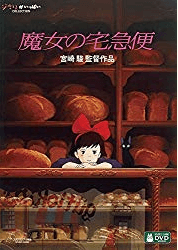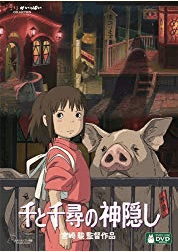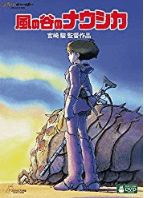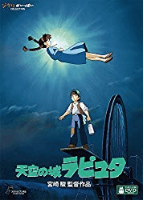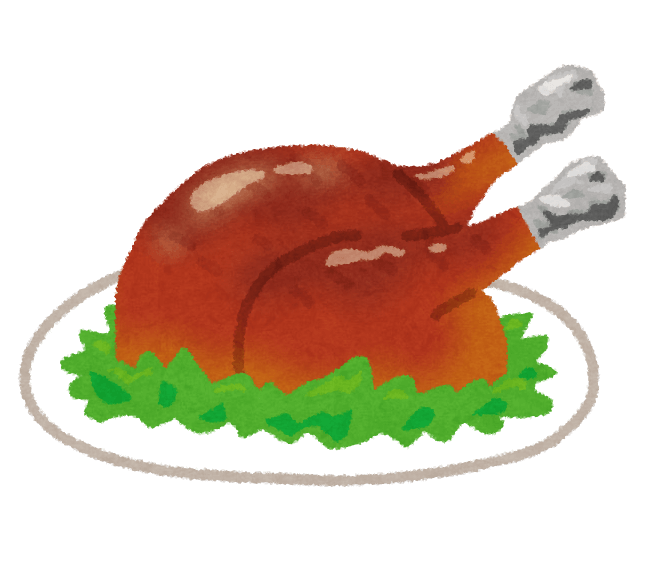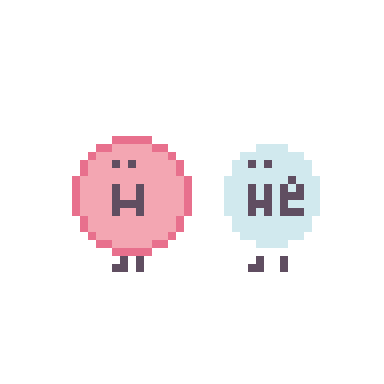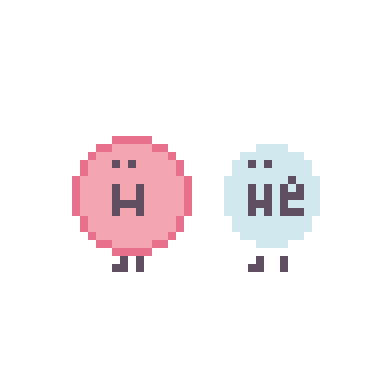英英辞典で単語を調べるときのように、英単語の説明を英語で読んで、何の英単語かをあてるクイズです。英語で英語を理解するので、英語脳を活性化し、ついでに単語力も強化できます。
クイズは、次のように出題されます。
例:
問題:次のように定義される英単語を選択肢から選んでください。
[The act of finding or learning something for the first time]
- adventure
- discovery 正解!
- prospect
- reaction
名詞編
1300を超える英単語の名詞から、ランダムで出題されます。
※問題/解答の一覧を見る
一覧をとじる
出題される名詞 一覧
■ party(政党)
An organization of people who have the same political beliefs
■ concern(心配する)
A feeling of worry or anxiety
■ product(製品、生産物)
Something that is made or grown to be sold or used
■ story(物語)
A description of how something happened
■ rate(速度、率)
The measure of speed or frequency over a particular period of time
■ care(注意)
Effort made to do something correctly or well
■ effect(効果)
A change or results of something being done
■ sort(一部)
A group of people or things that have some shared quality
■ cause(要因)
Something that produces an effect
■ water(水)
The clear liquid which forms the seas, rivers and rain
■ base(土台)
The bottom or lowest part of something : the part on which something rests or is supported
■ power(力)
The ability, capacity or right to control things
■ test(テスト)
A set of questions designed to measure a person's ability
■ center(中央)
The middle point or part
■ mother(母)
A female who has a child or children
■ matter(物質)
The physical substance things are made of
■ mind(心)
The part of person that enables us to think, feel, and reason
■ value(価値)
The amount of money something is worth
■ office(事務所)
A building of set of rooms used to do business or professional activities
■ record(記録)
An official piece of evidence or document about past events
■ light(光、明かり)
The form of energy that makes things visible
■ bit(少し)
A small piece of something
■ answer(答え)
A reaction to a question someone asks
■ figure(図)
A an amount that is expressed in numbers
■ letter(文字)
A written, typed or printed message
■ language(言語)
The system of words or signs that people use to express thoughts and feelings to each other
■ subject(主題)
The thing being discussed or described
■ class(クラス)
A group of students who often meet and are taught together
■ development(開発)
When someone or something grows or changes and becomes more advanced
■ town(町)
A place people live, larger than a village, smaller than a city
■ minute(分)
A period of time equal to 60 seconds
■ food(食べ物)
The things that people and animals eat
■ future(未来)
The period of time coming after the present
■ top(最上部)
The highest part, point, or level of something
■ color(色)
A quality such as red, blue, green, etc.
■ period(期間)
A length or portion of time during a series of events
■ note(メモ)
A brief, short record of something
■ history(歴史)
The study of past event
■ type(型)
A particular category of people or objects with a common characteristic
■ sound(音)
Something that is heard
■ eye(目)
The part of the body that you see with
■ music(音楽)
The art of making sounds that are sung or played
■ game(ゲーム、競技)
One of the games that are part of a larger contest
■ moment(瞬間)
A very short or brief period of time
■ sale(販売)
The act of selling something or exchanging for money
■ policy(政策)
A course of action proposed by an organization
■ body(体)
A person's physical self
■ team(チーム)
A group of people who compete in a sport, game
■ sense(感覚)
One of our natural abilities for receiving information
■ rule(規則)
Something that is not allowed in some situations
■ law(法律)
The system or rules made by the government
■ research(調査研究)
Careful study to find and report new knowledge
■ paper(紙)
The material that is used in the form of thin sheets for writing
■ position(位置)
The place something is located in
■ computer(コンピューター)
An electronic machine that can store and process large amounts of information
■ situation(状況)
A condition, location or position
■ staff(スタッフ)
A group of people who work for an organization or business
■ activity(活動)
Something which you do for enjoyment; action
■ film(フィルム)
Movie or a special material that is used for taking photographs
■ morning(朝)
The early part of the day
■ war(戦争)
A period of fighting or conflict between countries,
■ account(報告)
A story or report about something
■ shop(店)
A building or room where goods and services are sold
■ event(行事)
Something especially something important or notable that happens
■ condition(状況)
A way or quality of living or existing
■ father(父親)
A male parent
■ decision(決断)
A choice that you make about something after thinking about it
■ table(テーブル)
A piece of furniture with a flat top and legs
■ girl(少女)
A female child, a young woman
■ community(社会)
A group of people who share a common idea or area
■ role(役)
The character played by an actor
■ detail(詳細)
A small part of something
■ difference(違い)
A quality that is unlike something else
■ action(行動)
Something that a person does
■ health(健康)
The condition of being well or free from disease
■ phone(電話)
A communication system that is used to talk to someone who is in another place
■ date(日付)
A particular day of a month or year
■ practice(練習する)
To do something again and again in order to become better at it
■ model(模型)
A usually small copy of something
■ customer(顧客)
Someone who buys goods or services from a business
■ front(前)
The forward part of an object
■ door(ドア)
A movable entrance to a building or room
■ outside(外)
An area around or near something such as a building
■ site(現場)
The place where something is, was, or will be located
■ approach(近づく)
To get close to reaching something or somewhere
■ teacher(教師)
Someone whose job is to teach in a school, college, etc.
■ land(陸)
The solid part of the surface of the Earth
■ sign(しるし)
Something which shows that something else exists, is true, or will happen
■ claim(主張する)
To say something is true when others may not agree
■ relationship(関係)
A connection between two or more people or things
■ death(死)
The end of life, the fact of dying, being killed
■ amount(量)
A quantity of something
■ picture(写真、絵)
A painting, drawing or photograph on paper or screen
■ boy(男の子)
A male child or youth, a young man
■ organization(組織)
An official group of people who work together for the same purpose
■ couple(一対)
Two people or things being together
■ act(行動する)
Take action
■ range(範囲、幅)
The area of variation on a particular scale
■ quality(質、品質)
How good or bad something is
■ project(企画)
A planned piece of work for specific purpose
■ opportunity(機会)
An amount of time or a situation in which something can be done
■ road(道)
A hard flat surface for people or vehicles can use
■ accord(合意)
A formal or official agreement
■ list(リスト)
A series of written names, words or numbers
■ fund(資金)
A sum of money that is used for a special purpose
■ rest(休憩)
Not at work, to have time to relax, sleep or do nothing
■ kid(子供)
A child or young person
■ industry(産業)
Referring to the making of all products in a given field
■ education(教育)
The process of giving or receiving instruction
■ field(野原)
An open area of land, especially without trees or buildings
■ security(警備)
The things that are done to keep someone or something safe
■ air(空気)
The invisible mixture of gases that we breathe
■ benefit(利益、恩恵)
A good result or effect, something helpful
■ trade(交換する)
The activity of buying, selling, or exchanging
■ risk(リスク)
The possibility that something bad or unpleasant (such as an injury or a loss) will happen
■ news(ニュース)
New information or a report about something that has happened recently
■ percent(㌫)
A certain part of a whole
■ focus(焦点)
The main purpose or center of interest or activity
■ stage(段階)
A particular point in a process
■ space(場所)
The amount of an area, room, or surface
■ data(データ)
Facts or information used usually to calculate or analyze
■ address(住所)
The words and numbers that are used to describe the location of a building and that are written on letters, envelopes, and packages so that they can be mailed to that location
■ performance(演技)
An activity (such as singing a song or acting in a play) that a person or group does to entertain an audience
■ chance(機会)
An opportunity to do something; an amount of time or a situation in which something can be done
■ society(社会)
A community of people living together
■ technology(科学技術、テクノロジー)
The use, knowledge of science in industry, engineering
■ choice(選択)
the act of choosing : the act of picking or deciding between two or more possibilities
■ culture(文化)
The beliefs and customs of a particular group
■ demand(需要)
Forcefully saying that something must be done or given to you
■ material(材料)
A substance from which a thing is made of
■ limit(限度)
A point beyond which it is not possible to pass
■ foot(足(くるぶしから下))
The part of the leg below ankle
■ effort(努力)
Work done by the mind or body
■ attention(注意)
An act or power of carefully thinking about
■ ground(地面)
The solid surface of the earth that we stand on
■ animal(動物)
A living thing that is not a human being or plant
■ century(世紀)
A period of 100 years
■ evidence(証拠)
Something that makes you believe that something is true or exists
■ leader(リーダー)
A person in control of a group, country, or situation
■ street(街路)
A public road in a city or town
■ contact(接触)
The state or condition where two things are touching
■ wife(妻)
A married woman
■ sport(スポーツ)
A contest or game in which people do certain physical activities according to a specific set of rules and compete against each other
■ response(応答)
An answer or reaction to something that has been said or done
■ voice(声)
The sound a person produces with their mouth
■ piece(一切れ)
A part that is cut or separated from a whole
■ president(大統領)
The head of a government
■ fire(火)
The light, heat and the flame produced by burning something
■ court(裁判所)
A formal legal meeting place that judges about crimes
■ police(警察)
The people or the department of people who enforce laws, investigate crimes, and make arrests
■ store(店)
A building or room where things are sold
■ knowledge(知識)
Information, understanding, or skill that you get from experience or education
■ arm(腕)
Each of the two long body parts from shoulder to the hand
■ heart(心)
The organ in your chest that pumps blood through your body
■ source(源)
Produces or provides what is wanted or needed
■ employee(従業員)
A person who works for another person or for a company for wages or a salary
■ bank(堤防)
The higher ground that is along the edge of a river, stream, etc.
■ cell(細胞)
The smallest living part of an animal or a plant
■ article(記事)
A piece of writing about a particular subject that is included in a magazine, newspaper, etc.
■ attack(攻撃する)
To act violently against or to try to hurt, injure or destroy
■ surprise(驚く)
An unexpected event, piece of information, etc.
■ feature(特徴)
A distinctive or important point of something
■ factor(要因)
Something that influences a result
■ art(芸術)
A human creative skill using the imagination
■ campaign(キャンペーン)
A series of organized activities or events intended to achieve a result
■ pause(一時停止)
A temporary stop : a period of time in which something is stopped before it is started again
■ page(ページ)
One side of a sheet of paper especially in a book, magazine, etc.
■ summer(夏)
The warmest season of the year that is after spring and before autumn
■ opinion(意見)
A belief, judgment, or way of thinking about something : what someone thinks about a particular thing
■ park(公園)
A piece of public land in or near a city that can be used for pleasure and exercise
■ key(鍵)
A device that is used to open a lock or start an automobile ◊The usual type of key is a small metal object that you insert into a narrow opening and turn.
■ manager(経営者、管理者、部長)
Someone in control of an office, shop, team, etc.
■ notice(気づく)
To become aware of (something or someone) by seeing, hearing, etc.
■ wonder(驚くべきこと)
Something that is very surprising or amazing
■ nature(物質界)
The physical world and everything in it
■ structure(構造)
The way that something is built, arranged, or organized
■ section(部分)
One of the parts that form something
■ plant(植物)
A living thing that grows in the ground such as a tree or flower
■ paint(ペンキ)
A liquid that dries to form a thin colored layer
■ worker(従業員)
Someone who works for a company or organization but does not have a powerful position
■ press(新聞、雑誌、報道機関)
Newspapers, magazines, and TV news reports
■ region(地域)
A part of a country, of the world, area, etc.
■ growth(成長)
The process of growing
■ evening(夕べ)
The last part of the day and early part of the night
■ influence(影響)
The power to change or affect someone or something
■ respect(尊敬)
A feeling of admiring someone that is good or valuable
■ skill(技術)
The ability to do something that comes from training, experience, or practice
■ son(息子)
A male child
■ medium(中くらい)
A middle size, something between other things
■ average(平均)
A number that is calculated by adding quantities together and then dividing the total by the number of quantities
■ stock(在庫)
The supply of goods available for sale in a store
■ management(経営者)
The people who are in control of an office, shop, team, etc.
■ character(性格)
The way someone thinks, feels and behaves
■ bed(ベッド)
A piece of furniture that people sleep on
■ economy(経済)
A large system of production and consumption
■ guy(男)
A man
■ function(機能)
A particular purpose for which something is used
■ yesterday(昨日)
The day before today
■ image(絵、像)
A picture, sculpture or painting of something
■ size(サイズ、寸法)
The total amount of physical space that a person or thing occupies
■ behavior(態度、行動)
The way a person or animal acts or behaves
■ addition(追加物)
A new or extra thing which is added to something
■ station(駅)
A place where buses or trains regularly stop
■ population(人口)
The number of people who live in a place
■ environment(環境)
The conditions that surround people, animals or plants
■ production(生産)
The process of making or growing something for sale or use
■ contract(契約)
A legal written agreement between people
■ player(プレーヤー)
Someone who plays a sport or game
■ drug(薬)
A chemical substance used as a medicine; an illegal substance taken for recreation
■ wall(壁)
The layer of brick or stone that separates areas
■ series(一続き、連続の)
A number of things that happen one after another
■ success(成功)
To accomplish a purpose or achieving something
■ tomorrow(明日)
The day after today
■ director(監督)
A person who manages an organized group of people or a part of an organization
■ review(精査)
An act of carefully looking at or examining the quality or condition of something or someone
■ race(人種)
One of the groups that people can be divided into based on certain physical qualities (such as skin color)
■ window(窓)
An opening in a wall or door that usually contains a sheet of glass
■ purpose(目的)
The reason for which something is done
■ department(部門)
A division of a larger part or organization
■ tree(木)
A usually tall plant that has a thick, wooden stem and many large branches
■ college(大学)
An school or educational institution for adults
■ board(板)
A long, thin, flat piece of wood
■ holiday(休日)
A special day of celebration
■ church(教会)
A building used for Christian religious worship or services
■ machine(機械)
A piece of equipment with moving parts that does work when it is given power from electricity, gasoline, etc.
■ item(品物)
An individual article, unit or piece of information
■ cent(セント)
A unit of money that is equal to 1/100 of the basic unit of money
■ season(季節)
One of the four periods (spring, summer, autumn, and winter) into which the year is commonly divided
■ floor(床)
The part of a room on which you stand
■ stuff(材料)
Materials, supplies, or equipment
■ method(方法)
A way of doing something
■ analysis(分析)
The process of analyzing something
■ election(選挙)
The act or process of choosing someone for a public office by voting
■ hotel(ホテル)
A place that has rooms in which people can stay especially when they are traveling :a place that provides food, lodging, and other services for paying guests
■ club(クラブ)
A group of people who meet to participate in an activity
■ movie(映画)
A film or video
■ doctor(医師)
A person who skilled to treat people who are ill, sick and injured
■ discussion(議論)
The act of talking about something with another person or a group of people : a conversation about something
■ nation(国家)
A large area of land controlled by government, territory
■ statement(声明)
Something that someone says or writes officially
■ link(結びつける)
To join or connect together, a relationship
■ advantage(利点)
Something (such as a good position or condition) that helps to make someone or something better or more likely to succeed than others
■ mile(マイル)
A unit of measurement used in the US that is about 1600 meters
■ ability(能力)
The power or skill to do something
■ unit(単位)
A single thing, person or group that is a part of something larger
■ card(カード)
A small piece of stiff paper that is marked with symbols or pictures to show its value, comes in a set, and is used for playing games
■ hospital(病院)
A place where sick or injured people are given care or treatment and where children are often born
■ interview(面接)
A meeting in which someone asks you questions to see if you are suitable for a job or course
■ agreement(合意)
A promise or decision made between two or more people
■ tax(税金)
Money that a government requires people to pay
■ solution(解決策)
Something that is used or done to deal with and end a problem : something that solves a problem
■ capital(首都)
Having the main offices of a government
■ fear(恐れ)
An unpleasant feeling caused by being aware of danger
■ aim(狙う)
To have a specified goal or purpose
■ television(テレビ)
A piece of equipment with a screen on the front, used for watching programs
■ target(目的)
Something that you are trying to do or achieve
■ degree(度)
A unit for measuring temperature or the size of an angle
■ husband(夫)
A married man : the man someone is married to
■ access(アクセス)
A way of getting near to somewhere
■ movement(動き)
A change of position or place
■ loss(失うこと)
Failure to keep or to continue to have something
■ pressure(圧力)
The weight or force that is produced when something presses or pushes against something
■ bus(バス)
A large vehicle that is used for carrying passengers especially along a particular route at particular times
■ treatment(治療)
Something which you do to try to cure an illness or injury, especially something suggested or done by a doctor
■ supply(供給)
The amount of something that is available to be used
■ village(村)
A small town in the country
■ worth(価値)
Used to indicate the value of something
■ brother(兄弟)
A boy or man who has one or both of the same parents as you
■ investment(投資)
The money that you put in a bank, business, etc. in order to make a profit
■ score(スコア)
The number of points someone gets in a game or test
■ trip(旅)
A journey to a place
■ fish(魚)
A cold-blooded animal that lives in water, breathes with gills, and usually has fins and scales
■ promise(約束)
A statement telling someone that you will definitely do something or that something will definitely happen in the future
■ energy(エネルギー)
Having physical or mental strength
■ trouble(困難)
Problems or difficulties
■ relation(関係)
A person who is a member of your family
■ file(ファイル)
A folder or box for documents that are similar
■ middle(中間)
Equally distant from the ends or sides : halfway between two points
■ bar(酒場)
A building or room where alcoholic drinks and sometimes food are served
■ strategy(戦略)
A careful plan or method for reaching a goal
■ advance(進む)
To move forward
■ star(星)
Any one of the objects in space that are made of burning gas and that look like points of light in the night sky
■ network(ネットワーク)
A system of lines, wires, etc., that are connected to each other
■ operation(手術)
When a doctor cuts into someone's body to remove a sick part
■ match(匹敵する)
Someone or something that is equal to or as good as another person or thing
■ seat(席)
Something (such as a chair) that you sit on
■ task(仕事)
A piece of work to have done given by a person
■ goal(目標)
Something you try to do or achieve, an aim or result
■ option(選択)
Something which may be chosen
■ box(箱)
A container that is made of a hard material (such as wood, metal, or cardboard) and that usually has four straight sides
■ message(メッセージ,伝言)
A piece of information that is sent or given to someone
■ instance(事例)
An example of a particular action or situation
■ style(型)
A particular way something is done or created
■ quarter(4分の1)
One of four equal parts of something
■ baby(赤ん坊)
A very young child
■ competition(競争)
The act or process of trying to get or win something (such as a prize or a higher level of success) that someone else is also trying to get or win
■ theory(理論)
An idea that is explain facts or events academically
■ reference(言及する)
The act of mentioning something in speech or in writing
■ argument(口論)
An angry discussion with someone in which you both disagree
■ adult(大人)
A person or animal that is grown up
■ document(文書)
An official record that gives information
■ pattern(パターン)
A repeated form or design especially that is used to decorate something
■ application(応募書)
A formal and usually written request for something (such as a job
■ bill(請求書)
A document that says how much money you owe for something you have bought or used
■ career(キャリア)
A job that you do for a long period of your life
■ speech(スピーチ)
A spoken expression of ideas, opinions, etc., that is made by someone who is speaking in front of a group of people
■ dog(犬)
A type of animal that is often kept as a pet or trained to work for people by guarding buildings, hunting, etc.
■ officer(会社員)
A person who has an important position in a company or organization
■ oil(オイル,油)
A thick, black liquid that comes from the ground and that is used in making various products (such as gasoline)
■ dress(ドレス)
A piece of clothing for a woman or a girl that has a top part that covers the upper body and a skirt that hangs down to cover the legs
■ profit(利益)
Money that is made in a business, through investing, etc.
■ resource(資源)
An essential supply of something
■ science(科学)
Knowledge about or study of the natural world based on facts
■ disease(病気)
An illness that affects a person, animal, or plant
■ balance(バランス)
The state of having your weight spread equally so that you do not fall
■ damage(損傷)
Physical harm that is done to something or to someone's body
■ basis(基礎)
Something from which another thing develops
■ author(著者)
A person who writes book
■ hair(毛髪、毛)
A thin threadlike growth from the skin of a person or animal
■ exercise(運動)
Physical activity that is done in order to become stronger and healthier
■ restaurant(レストラン)
A place where you can buy and eat a meal
■ income(収入)
Earned money from work, investments or business
■ property(所有物)
Something that is owned by a person or business
■ daughter(娘)
A female child
■ post(郵便物)
Letters or packages sent by post
■ newspaper(新聞)
A set of large sheets of paper that have news stories, information about local events, advertisements, etc., and that are folded together and sold every day
■ conclusion(結論)
The opinion you have after considering all the information about something; the final part of something
■ clock(時計)
A device that shows what time it is and that is usually placed in a room or attached to a wall
■ weekend(週末)
Saturday and Sunday
■ debate(討論)
A formal discussion between people
■ memory(記憶)
The power or process of remembering what has been learned
■ song(歌)
A short piece of music with words that are sung
■ object(物体)
A thing that you can see and touch and that is not alive
■ credit(信用)
The quality of being believed or having a good reputation
■ ring(指輪)
A piece of jewelry that is worn usually on a finger
■ afternoon(午後)
The middle part of the day : the part of the day between noon and evening
■ possibility(可能性)
A chance that something may happen or be true
■ direction(方向)
The course or path on which something is moving or pointing
■ facility(施設)
A place where a particular activity happens
■ variety(多様な)
A number or collection of different things or people
■ clothes(衣服)
Items such as shirts and trousers that you wear on your body
■ screen(画面)
The usually flat part of a television or computer monitor that shows the images or text : the part of a television or computer that you look at when you are using it
■ track((人・車などの)通った跡)
A path or trail that is made by people or animals walking through a field, forest, etc.
■ responsibility(責任)
Something that it is your job or duty to do or deal with
■ sister(姉妹)
A girl or woman who has one or both of the same parents as you
■ rock(揺れ動く)
To move (someone or something) back and forth or from side to side
■ dream(夢)
A series of thoughts, visions, or feelings that happen during sleep
■ university(大学)
A high-level educational school where academic research is done
■ agency(代理店)
A business that provides a particular service
■ dollar(ドル)
A basic unit of money in the U.S., Canada, Australia, and other countries that is equal to 100 cents
■ garden(庭)
An area of ground where plants (such as flowers or vegetables) are grown
■ weight(重さ)
A measurement that indicates how heavy a person or thing is
■ proposal(提案)
Something (such as a plan or suggestion) that is presented to a person or group of people to consider
■ version(版)
A particular form of something and other forms
■ conversation(会話)
An informal talk involving two people or a small group of people
■ pound(ポンド)
A unit of weight that is equal to 16 ounces or 0.4536 kilograms
■ magazine(雑誌)
A thin book published every week or month, that has shiny, colorful pages with articles and pictures
■ shape(形)
The form or outline of an object
■ sea(海)
The salt water that covers much of the Earth's surface
■ smile(笑顔)
An expression on your face that shows happiness, amusement or pleasure
■ communication(コミュニケーション)
The act of communicating with other people
■ agent(代理人)
A person who does business for another person : a person who acts on behalf of another
■ judge(審判)
A person who has the power to make a decision
■ generation(世代)
People born and living during about the same time
■ estimate(予算)
A rough idea or guess
■ difficulty(困難)
The quality of something that makes it hard to do : the difficult nature of something
■ survey(調査)
An act of studying to make a judgment about it
■ majority(大多数)
More than half of a group of people or things
■ stick(棒)
A cut or broken branch or twig
■ request(要請)
An act of politely or formally asking for something
■ wind(風)
A natural movement of air outside
■ exchange(交換)
An occurrence in which people give things of similar value to each other
■ budget(予算)
A plan of how you will spend your money; the amount of money you have for something
■ blood(血液)
The red liquid that flows through the bodies of people and animals
■ block(ブロック)
A solid piece of material (such as rock or wood) that has flat sides and is usually square or rectangular in shape
■ scene(場面)
A division of an act in a play during which the action takes place in a single place without a break in time
■ writer(作家)
Someone whose job is writing books, stories, articles, etc.
■ content(内容)
The things that are in something
■ element(要素)
An essential or particular part of something
■ telephone(電話)
A system that uses wires and radio signals to send sounds (such as people's voices) over long distances
■ copy(うり二つ)
Something that is or looks exactly or almost exactly like something else
■ committee(委員会)
A group of people who are chosen to make decisions about something
■ advice(アドバイス、助言)
An opinion or suggestion about what someone should do
■ handle(ハンドル)
A part of something that is designed to be held by your hand
■ glass(ガラス)
A hard usually transparent material that is used for making windows and other products
■ trial(裁判)
A formal meeting in a court in which evidence about crimes
■ stress(ストレス)
A state of mental tension and worry caused by problems
■ radio(ラジオ、無線)
The system or process that is used for sending and receiving signals through the air without using wires
■ administration(経営管理)
The work of organizing and arranging the operation of something, such as a company
■ text(本文)
The original words in main writing or speech
■ context(事情)
A set of facts surrounding a person or event
■ equipment(設備)
The things that are used for a particular activity or purpose
■ title(題名)
The name given to something (such as a book, song, or movie) to identify or describe it
■ executive(幹部)
People who have important jobs in business
■ chair(いす)
A seat for one person that has a back and usually four legs
■ sample(見本)
A small amount of something that gives you information about the thing it was taken from
■ sex(性別)
The state of being male or female mostly biological
■ video(ビデオ)
A film or television program recorded on videotape
■ connection(接続)
Something that joins or connects two or more things
■ weather(天気)
The state of the air and atmosphere at a particular time and place
■ principle(原理、原則)
A moral rule or belief that governs person's behavior
■ appeal(訴え、要請)
When a lot of people are asked to give money, information, or help; a request to change an official decision
■ trust(信頼)
Belief that someone or something is reliable, good, honest, effective, etc.
■ farm(農場)
Land that is used for growing crops or raising animals
■ collection(収集)
The act or process of getting things from different places and bringing them together
■ band(バンド)
A group of people or animals
■ tour(旅行)
A journey through the different parts of a country, region, etc.
■ software(ソフトウェア)
Programs that you use to make a computer do different things
■ pair(一組、一対)
Two things that are the same and are meant to be used together
■ ship(船)
A large boat used for traveling long distances over the sea
■ attitude(態度)
The way you act, think and feel about something
■ leg(脚)
One of the long body parts that are used especially for standing, walking, and running
■ sentence(文)
A group of words that expresses a statement, question, command, or wish Sentences usually contain a subject and verb.
■ progress(前進)
Movement forward or toward a place
■ truth(真実)
The real facts about something : the things that are true
■ speed(速度)
The rate at which someone or something moves or travels
■ politics(政治)
Activities that relate to influencing the actions and policies of a government or getting and keeping power in a government
■ user(使用者)
Someone who uses a product, machine, or service
■ dinner(夕食)
The main meal of the day
■ suit(スーツ)
A set of clothes that usually consists of a jacket and a skirt or pair of pants that are made out of the same material
■ percentage(割合)
An amount of something, expressed as a number out of 100
■ peace(平和)
Freedom from any disturbance; when there is no war or fighting
■ status(地位)
The position or rank compared in a society
■ crime(犯罪)
An illegal act for which someone can be punished by the government
■ decade(10年)
A period of 10 years
■ consumer(消費者)
Someone who buys or uses goods or services
■ favor(恩恵、世話)
A kind or helpful act that you do for someone
■ partner(相棒)
Someone's husband or wife or the person someone has sexual relations with
■ institution(機関)
A large and important organization, such as a university or bank
■ spot(場所)
A small area of a surface that is different from other areas
■ horse(馬)
A large animal that is used for riding and for carrying and pulling things
■ heat(熱)
Energy that causes things to become warmer
■ reader(先導者)
Someone who reads
■ importance(重要性)
The quality or state of being important
■ distance(距離)
The amount of space between two places or things
■ guide(案内人)
A person who leads or directs other people on a journey
■ taxi(タクシー)
A car that carries passengers to a place for an amount of money that is based on the distance traveled
■ pain(痛み)
The physical feeling caused by disease, injury, or something that hurts the body
■ sector(課)
An area that includes certain kinds of job
■ mistake(誤り)
Something that is not correct : a wrong action, statement, or judgment
■ chief(長、主任)
The person who is the leader of a group of people, of an organization, etc.
■ expert(専門家)
A person who is very skillful or knowledgeable
■ wave(波)
An area of moving water that is raised above the main surface of an ocean, a lake, etc.
■ south(南)
The direction that is the opposite of north
■ labor(労働)
Work, especially the type of work that needs a lot of physical effort; workers
■ surface(表面)
An outside or upper layer of something
■ library(図書館)
A place where books, magazines, and other materials (such as videos and musical recordings) are available for people to use or borrow
■ edge(端)
The line or part where an object or area begins or ends
■ camp(キャンプ)
A place that is usually far away from cities and that has tents, small houses, etc., that people can live in for a short period of time
■ audience(観衆)
A group of people who gather together to listen to something (such as a concert) or watch something (such as a movie or play)
■ procedure(手続き)
The official or usual way of doing something
■ extent(規模)
The range, distance, or space that is covered or affected by something or included in something
■ river(川)
A large natural flow of water that crosses an area of land that goes into the ocean
■ reality(現実)
The way things or situations really are
■ photograph(写真)
A picture made by a camera
■ artist(芸術家)
Someone who creates art, especially paintings and drawings
■ conflict(闘争)
A struggle or fight for an idea, power, property, etc.
■ presence(存在)
The fact of being in a particular place : the state of being present
■ crowd(人混み)
A large group of people who are together in one place
■ corner(角)
The point or area where two lines, edges, or sides of something meet
■ gas(ガソリン)
A substance (such as oxygen or hydrogen) that is like air and has no fixed shape
■ category(分類)
A group of people or things that are similar in some way
■ secretary(秘書)
A person whose job is to do routine work for someone else
■ defense(防御)
The act of defending someone from attack
■ cook(料理人)
Someone who prepares and cooks food for eating at home, in a restaurant, etc.
■ scale(規模)
A device that is used for weighing people or things
■ driver(運転手)
Someone who drives a vehicle
■ ball(ボール)
A usually round object that is used in a game or sport or as a toy
■ introduction(導入)
The act of making a person known to others by name
■ requirement(要件)
Something that is needed or demanded
■ north(北)
The direction that is to your left when you are facing the rising sun
■ photo(写真)
A picture made by a camera
■ map(地図)
A picture or chart that shows the rivers, mountains, streets, etc., in a particular area
■ concept(概念・発想)
An abstract idea of something or how it works
■ island(島)
An area of land that is surrounded by water
■ reform(改革)
When changes are made to improve a system, organization, or law, or a change that is made
■ football(サッカー)
A game in which two teams of players try to kick, run with, or throw an oval ball across each other's goal line; a ball used to play football
■ flight(飛行)
A journey in an aircraft; the act of flying
■ neighbor(隣の)
A person who lives next to or near another person
■ background(背景)
Sounds or images that are not the main focus; a persons life experience up to now
■ technique(技術)
A way of doing by using special knowledge or skill
■ traffic(交通)
The cars, trucks, etc. using a road
■ improvement(改善)
When something gets better or when you make it better
■ tool(道具)
Something (such as a hammer, saw, shovel, etc.) that you hold in your hand and use for a particular task
■ consequence(結果)
The result of an action or situation, especially a bad result
■ circumstance(取り巻く環境)
A condition or fact affects a situation, environment
■ smoke(煙)
The cloud of black, gray, or white gases and dust that is produced by burning something
■ reaction(反応)
Something you say, feel, or do because of something that has happened
■ rain(雨)
Water that falls in drops from clouds in the sky
■ lesson(授業)
An activity that you do in order to learn something
■ brain(脳)
The organ of the body in the head that controls functions, movements, sensations, and thoughts
■ mass(巨大)
A usually large amount of a substance that has no particular shape
■ failure(失敗)
The act or result of failing
■ schedule(日程)
A plan of things that will be done
■ speaker(スピーカー)
The part of a radio, CD player, etc. which the sound comes out of; a person who is speaking
■ bottom(底)
The lowest part, point, or level of something
■ mountain(山)
An area of land that rises very high above the land around it and that is higher than a hill
■ marriage(結婚)
The relationship that exists between a husband and a wife
■ ticket(チケット)
A piece of paper that allows you to see a show, participate in an event, travel on a vehicle, etc.
■ meal(ご飯)
The foods eaten or prepared for eating at one time
■ colleague(同僚)
A person you work together or cooperate with
■ bag(バッグ)
A container made of thin material (such as paper, plastic, or cloth) that opens at the top and is used for holding or carrying things
■ expression(表現)
The act of making your thoughts, feelings, etc., known by speech, writing, or some other method : the act of expressing something
■ owner(持ち主)
Someone who legally owns something
■ plane(飛行機)
A vehicle that flies and has an engine and wings
■ lady(女性)
A woman who behaves in a polite way
■ duty(業務)
Something that is done as part of a job
■ strength(体力)
The quality or state of being physically strong
■ scheme(計画)
A clever plan to do or get something
■ payment(支払い)
The act of paying; the amount of money that is paid
■ bird(鳥)
An animal that has wings and is covered with feathers
■ contribution(貢献)
Something that you do or give to help produce or develop something, or to help make something successful
■ chapter(章)
One of the main sections, periods of a book
■ novel(小説)
A book that tells a story about imaginary people and events
■ union(組合)
An organization of workers formed to protect the rights
■ trend(傾向、動向)
A general direction of developing, proceeding
■ pleasure(喜び)
A feeling of happiness, enjoyment, or satisfaction : a pleasant or pleasing feeling
■ suggestion(提案)
An idea about what someone should do or how someone should behave
■ earth(地球)
The planet on which we live
■ path(小道)
A track that is made by people or animals walking over the ground
■ topic(題)
A matter people talk or write about
■ beach(海辺)
An area of sand or rocks next to the sea
■ flower(花)
The part of a plant that is often brightly colored, that usually lasts a short time, and from which the seed or fruit develops
■ crisis(危機)
A situation or time that is extremely dangerous or difficult
■ boat(ボート)
A small vehicle that is used for traveling on water
■ fan(扇風機)
A machine or device that is used to move the air and make people or things cooler
■ kitchen(台所)
A room in which food is cooked
■ delay(遅れる)
A situation in which something happens later than it should
■ safety(安全)
Freedom from harm or danger : the state of being safe
■ engineer(技術者)
A person who has scientific training and who designs and builds complicated products, machines, systems, or structures
■ insurance(保険)
An agreement in which a person makes regular payments to a company and the company promises to pay money if the person is injured or dies, or to pay money equal to the value of something (such as a house or car) if it is damaged, lost, or stolen
■ nurse(看護師)
A person who is trained to care for sick or injured people and who usually works in a hospital or doctor's office
■ length(長さ)
The distance from one end of something to the other end
■ investigation(調査)
When officials try to discover all the facts about something, especially a crime or an accident
■ package(パッケージ)
A box or large envelope that is sent or delivered usually through the mail or by another delivery service
■ weapon(武器)
Something (such as a gun, knife, club, or bomb) that is used for fighting or attacking someone or for defending yourself when someone is attacking you
■ host(主催者、(客をもてなす)主人)
A person (especially a man) who is entertaining guests socially or as a job
■ winter(冬)
The coldest season of the year that is after autumn and before spring
■ district(区)
An area or section of a country, city, or town
■ spring(春)
The season between winter and summer
■ spirit(魂)
The non-physical part of a person, our emotions and soul
■ lunch(昼食)
A light meal eaten in the middle of the day
■ pool(水たまり)
A small area of water
■ battle(戦い)
A military fight between groups of soldiers, ships, airplanes, etc.
■ tradition(伝統)
A way of thinking, behaving that used for a long time
■ cash(現金)
Money in the form of coins or notes (= paper money)
■ award(賞)
A prize given to someone for something they have achieved
■ coach(コーチ)
Someone whose job is to teach people to improve at a sport, skill, or school subject
■ experiment(実験)
A scientific test to observe the effect in order to learn
■ consideration(考慮)
Something that you have to think about when you make decisions or plans; the act of thinking about something carefully
■ code(暗号)
A set of letters or numbers that identifies information
■ threat(脅かす人・もの)
Someone or something that could cause trouble, harm, etc.
■ accident(事故)
A sudden event (such as a crash) that is not planned or intended and that causes damage or injury
■ revenue(収益)
Money that is made by or paid to a business
■ cancer(癌)
A serious disease that is caused when cells in the body grow in a way that is uncontrolled and not normal
■ sun(太陽)
The star that the Earth moves around and that gives the Earth heat and light
■ volume(音量、巻)
The amount of sound, a book forming part, series
■ location(位置)
A place or position
■ actor(俳優)
A person who acts in a play, movie, etc.
■ tape(テープ)
A long, narrow piece of material used to stick things
■ stone(石)
A hard substance that comes from the ground and is used for building, carving, etc.
■ sum(合計)
The result of adding two or more numbers together
■ murder(殺人犯)
The crime of deliberately killing a person
■ soldier(軍人)
A person who is in the military
■ finance(財務)
Management of money that a company uses
■ egg(卵)
A hard-shelled oval thing from which a young bird is born
■ concert(コンサート)
A performance of music and singing
■ shock(衝撃)
A sudden usually unpleasant or upsetting feeling caused by something unexpected
■ wine(ワイン)
An alcoholic drink made from the juice of grapes
■ camera(カメラ)
A device that is used for taking photographs or for making movies, television programs, etc.
■ theater(劇場)
A building where plays, shows, etc., are performed on a stage
■ cycle(循環)
A series of regular and repeated actions
■ coffee(コーヒー)
A dark brown drink made from ground coffee beans and boiled water
■ museum(美術館)
A building where you can look at important objects connected with art, history, or science
■ visitor(訪問者)
Someone who visits a person or place
■ freedom(自由)
The state of being free: such as a : the power to do what you want to do : the ability to move or act freely
■ construction(建設)
The work of building houses, offices, bridges, etc.
■ objective(客観的)
Based on facts not influenced by feelings or opinions
■ branch(枝)
A part of a tree that grows out from the trunk
■ vehicle(乗り物)
A machine (such as a car) that is used to carry things
■ scientist(科学者)
A person who is trained in a science and whose job involves doing scientific research or solving scientific problems
■ route(道)
A way to get from one place to another place
■ taste(味)
The sweet, sour, bitter, or salty quality of a thing that you can sense when it is in your mouth
■ tonight(今夜)
This night or the night following this day
■ fashion(流行)
A popular way of dressing during a particular time or among a particular group of people
■ danger(危険)
The possibility that you will be hurt or killed
■ bomb(爆弾)
A weapon that explodes and causes damage
■ army(陸軍)
A large group of soldiers organized to fight battles on land
■ council(評議会)
A group of people who are chosen to make rules, laws, or decisions about something
■ editor(編集者)
Someone whose job is to prepare text, film, etc. by deciding what to include and making mistakes correct
■ sight(視力)
The ability to see
■ gift(贈り物)
Something that is given to another person or to a group or organization
■ delivery(宅配)
The act of taking something to a person or place
■ guest(ゲスト)
A person who is invited to visit or stay in someone's home
■ bedroom(寝室)
A room used for sleeping
■ violence(暴力)
The use of physical force to harm someone, to damage property, etc.
■ minister(大臣)
An official who heads a government department or a major section of a department in some countries
■ mouth(口)
The opening through which food passes into the body
■ noise(騒音)
A loud or unpleasant sound
■ manner(方法)
The way that something is done or happens
■ gun(ピストル、鉄砲)
A weapon that shoots bullets or shells
■ square(四角形)
A four-sided shape that is made up of four straight sides that are the same length
■ occasion(機会)
A special event or time
■ affair(業務)
Work or activities done for a purpose
■ citizen(市民)
A person who legally belongs to a country and has the rights and protection of that country
■ temperature(温度)
A measurement that indicates how hot or cold something is
■ gold(金)
A soft yellow metal that is very valuable and that is used especially in jewelry
■ load(積載貨物)
Something that is lifted and carried
■ belief(信念)
A feeling of being sure that someone or something exists or that something is true
■ troop(一団、軍隊)
A group of people, especially soldiers or theater actors
■ arrangement(合意、取り決め)
An agreement between two people or groups; a plan
■ skin(肌)
The natural outer layer of tissue that covers the body of a person or animal
■ prison(牢獄)
A building where people are kept as punishment for a crime or while they are waiting to go to court
■ wood(木)
The hard substance that makes up the stems and branches of trees and shrubs
■ tear(涙)
A drop of liquid that comes from your eyes especially when you cry
■ representative(代表)
Typical of a particular group of people or of a particular thing
■ capacity(許容量)
Ability to hold, involve or contain people or things
■ border(国境)
A line separating one country or state from another
■ assessment(査定、評価)
To make a judgment about the quality, size, value, etc. of something
■ shoe(くつ)
An outer covering for your foot that usually has a stiff bottom part called a sole with a thicker part called a heel attached to it and an upper part that covers part or all of the top of your foot
■ fee(謝礼金)
An amount of money paid for a particular action
■ hall(ホール)
The area inside the entrance of a building
■ regulation(規制)
An official rule that controls how something is done
■ studio(スタジオ)
A room where an artist or photographer works; a place where TV, radio, or movies are made or broadcast
■ tourist(旅行者)
Someone who visits a place for pleasure and does not live there
■ component(構成要素、部品)
One of the parts that consists something
■ lawyer(弁護士)
A person whose job is to guide and assist people in matters relating to the law
■ cup(カップ)
A small round container that often has a handle and that is used for drinking liquids (such as tea and coffee)
■ description(描写)
A statement that tells you how something or someone looks, sounds, etc. : words that describe something or someone
■ confidence(自信)
A feeling or belief that you can do something well or succeed at something
■ perspective(観点)
A way of thinking, an attitude toward something
■ error(誤り、エラー)
Something that is not correct, a mistake
■ arrest(逮捕する)
To use the power of the law to take and keep (someone, such as a criminal)
■ register(登録簿)
An official list, book or system for keeping records
■ asset(貴重な人材、資産)
A person, skill, or quality which is useful or helps you to succeed; something valuable which is owned
■ signal(信号)
An event or act which shows that something exists or that gives information about something
■ finger(指)
One of the five long parts of the hand that are used for holding things
■ leadership(指導権)
A position as a leader of a group, organization, etc.
■ commitment(約束、義務)
A promise or firm decision to do something; something that you must do that takes your time
■ frame(骨組み、体格)
The basic structure and shape of the body of a person or animal
■ bond(絆)
Something that is shared between people or groups
■ hole(穴)
An opening into or through something
■ chain(鎖)
A series of usually metal links or rings that are connected to each other in a line and used for supporting heavy things, for holding things together, for decoration, etc.
■ literature(文学)
Written works (such as poems, plays, and novels) that are considered to be very good and to have lasting importance
■ victim(犠牲者)
Someone who has suffered the effects of violence, illness, or bad luck
■ division(分割)
One of the parts into which a thing is divided
■ device(装置)
An object, machine, or equipment for a specific use
■ birth(誕生)
The time when a baby comes out from the body of its mother
■ forest(森)
A thick growth of trees and bushes that covers a large area
■ label(ラベル)
An attached piece of paper used to identify something
■ root(根)
The part of a plant that grows underground, gets water from the ground, and holds the plant in place
■ factory(工場)
A building or group of buildings where products are made
■ expense(費用)
The amount of money that is needed to pay for or buy something
■ channel(チャンネル)
A station of TV, or radio
■ recommendation(推薦)
A piece of advice about what to do in a particular situation; a suggestion about something that is good in a certain situation
■ rank(階級、地位)
A position in a society, organization, group, etc.
■ west(西)
The direction where the sun sets; opposite of east
■ provision(規定)
A rule that is part of a law or an agreement
■ bridge(橋)
A structure built over something (such as a river) so that people or vehicles can get across
■ graduate(卒業する)
Someone who has studied for and received a degree (= qualification) from a school, college, or university
■ brand(商標)
A product that is made by a particular company
■ combination(組み合わせ)
A mixture of different people or things
■ abuse(乱用する)
Violent, cruel treatment of someone
■ ice(氷)
Frozen water
■ master(管理人)
Someone who has control or power over others
■ session(期間)
A period during which you do one activity
■ grade(成績)
A level of study that is completed by a student
■ protection(保護)
The state of being kept from harm, loss, etc.
■ shot(打つ)
When a bullet is fired from a gun; a photograph; an attempt to score in sports by throwing or kicking a ball
■ appearance(外見)
The way that someone or something looks
■ guarantee(保障する)
A assurance that the quality of something is good
■ theme(テーマ)
The main subject to discuss or describe
■ judgment(判決)
An opinion about someone or something that is decided after thinking carefully
■ loan(ローン)
An amount of money that is given to someone for a period of time with a promise that it will be paid back
■ definition(定義)
An explanation of the meaning of a word or phrase
■ atmosphere(雰囲気)
The feeling which exists in a place or situation
■ farmer(農夫)
Someone who owns or looks after a farm
■ comparison(比較)
The act of looking at things to see how they are similar or different
■ characteristic(特徴)
A typical or obvious quality that makes one person or thing different from others
■ license(免許)
To give someone official permission to do or have something
■ identity(身元、独自性)
Who someone is; the things that make one person or group of people different from others
■ desk(机)
A piece of furniture that is like a table and often has drawers ◊People often sit at desks when they are writing or using a computer.
■ commission(任務)
People who are given the job of doing something
■ association(協会、組合)
An organized group of people who have the same interest
■ instrument(器具、楽器)
A tool or device used for a particular purpose
■ investor(投資家)
Someone who puts money in a bank, business, etc. in order to make a profit
■ tea(茶)
A drink that is made by soaking the dried leaves of an Asian plant in hot water
■ row(列)
A straight line of people or things that are next to each other
■ youth(青年時代、若いころ)
The time of life when someone is young : the time when a young person has not yet become an adult
■ lock(錠前)
A device that keeps something (such as a door, window, or box) from being opened and that is usually opened by using a key
■ fuel(燃料)
A substance that is burned to provide heat or power
■ expectation(期待)
When you expect something to happen
■ employment(雇用)
When someone is paid to work for a person or company
■ shoulder(肩)
The part of your body where your arm is connected
■ breath(息)
The air that you take into your lungs and send out from your lungs when you breathe
■ bottle(ボトル)
A glass or plastic container that has a narrow neck and usually has no handle Bottles are usually used to store liquid or tablets.
■ sheet(シーツ)
A large piece of cloth that is used to cover something
■ engine(エンジン)
A machine that changes energy (such as heat from burning fuel) into mechanical motion
■ notion(考え)
An idea or opinion about doing something
■ journey(旅)
An act of traveling from one place to another : trip
■ opposition(反対)
Actions or opinions that show that you disagree with or disapprove of someone or something
■ relief(安堵)
A pleasant and relaxed feeling that someone has when something unpleasant stops or does not happen
■ debt(借金)
An amount of money that you owe to a person, bank, company, etc.
■ honor(名誉)
Respect that is given to someone who is admired
■ outcome(結果)
Something that happens as a result, consequence
■ explanation(説明)
The details or reasons that someone gives to make something clear or easy to understand
■ dad(パパ)
Father
■ fruit(くだもの)
A usually sweet food (such as a blueberry, orange, or apple) that grows on a tree or bush
■ witness(証人)
A person who sees something (such as a crime) happen
■ mail(郵便)
The system used for sending letters and packages from one person to another
■ researcher(研究者)
A person who studies a subject in detail in order to discover new information about it
■ selection(選択)
When someone or something is chosen; a thing or person who is chosen
■ participant(参加者)
Someone who is involved in an activity
■ vision(視覚)
The ability to see, sight, eyesight
■ personality(人柄)
The way you are as a person
■ entry(入場)
When you come into or go into a place
■ fellow(仲間)
Used to describe people who belong to the same group or class or who share a situation, experience, etc.
■ tip(先端)
The end of something that is usually long and thin
■ discount(値引き)
A reduction in price
■ peak(頂点)
The highest level or value of something; the top of a mountain
■ chairman(議長)
He person (especially a man) who is in charge of a meeting, committee, or event
■ proportion(割合)
An amount that is a part of a whole thing
■ ear(耳)
The part of the body that you hear with
■ yard(庭)
An outdoor area that is next to a house and is usually covered by grass
■ hill(丘)
A usually rounded area of land that is higher than the land around it but that is not as high as a mountain
■ instruction(指示)
Something that you have been told to do
■ intelligence(知能)
The ability to learn things or to consider situations
■ folk(人々)
People
■ guard(護衛する)
A state in which someone is carefully looking for possible danger, threats, problems, etc.
■ cat(猫)
A small animal that is related to lions and tigers and that is often kept by people as a pet
■ presentation(プレゼンテーション)
A talk giving information about something
■ joint(関節)
A point where two bones meet in the body
■ poll(世論調査)
When people are asked questions to discover what they think about a subject; a survey
■ faith(信仰、信条)
Strong belief or trust in someone or something
■ reduction(縮小)
The act of making something smaller in size, amount, number, etc. : the act of reducing something
■ complaint(不平)
A statement that you are unhappy or not satisfied with something
■ mission(任務)
An important job, usually traveling somewhere
■ tone(音質)
The quality of a sound, especially of someone's voice
■ neighborhood(隣人)
The people who live near each other or a section of a town or city
■ passenger(乗客)
A person who is traveling from one place to another in a car, bus, train, ship, airplane, etc., and who is not driving or working on it
■ justice(裁判、裁き)
The process or result of using laws to fairly judge and punish crimes and criminals
■ phase(段階)
A distinct part or step in a process
■ religion(宗教)
The belief in a god
■ employer(雇用者)
A person or company that pays people to work for them
■ plate(皿)
A flat and usually round dish that is used for eating or serving food
■ protest(抗議)
When people show that they disagree with something by standing somewhere, shouting, carrying signs, etc.
■ index(索引)
A written or printed order list
■ circle(丸い)
A perfectly round shape : a line that is curved so that its ends meet and every point on the line is the same distance from the center
■ impression(印象)
An idea, feeling, or opinion about something or someone
■ joke(冗談)
Something said or done to cause laughter
■ sky(空)
The space over the Earth where the sun, moon, stars, and clouds appear
■ column(欄)
One of the vertical blocks of print into which a page of a newspaper, magazine, dictionary or spreadsheet, is divided
■ coast(海岸)
The land along or near a sea or ocean
■ legislation(法律)
A law or a set of laws
■ county(州)
An area of Britain, Ireland, or the US that has its own local government
■ assistant(助手、補佐)
Someone whose job is to help a person who has a more important job
■ chart(チャート)
A table or diagram that shows information
■ hell(地獄)
According to some religions, the place where bad people go when they die; a very unpleasant experience
■ household(世帯)
A family or group of people who live together in a house
■ reward(報酬)
Money or another kind of payment that is given or received for something that has been done or that is offered for something that might be done
■ east(東)
The direction where the sun rises
■ hat(帽子)
A covering for the head that often has a brim and a rounded or flat top
■ voter(有権者)
Someone who votes or who is officially allowed to vote
■ wage(賃金)
An amount of money that a worker is paid based on the number of hours, days, etc., that are worked
■ absence(欠如)
A state or condition in which something expected, wanted, or looked for is not present or does not exist
■ remark(発言)
The act of noticing or making a comment about something
■ medicine(薬)
A substance that is used in treating disease or relieving pain and that is usually in the form of a pill or a liquid
■ professor(教授)
A teacher of high rank in a university or college
■ intention(意図)
The thing that you plan to do or achieve : an aim or purpose
■ dozen(ダース)
A group of 12 people or things
■ settlement(和解)
An official agreement that finishes an argument
■ gap(差)
A space between two people or things
■ estate(私有地)
Land that a person owns
■ victory(勝利)
Success in defeating an opponent or enemy
■ critic(批評家)
A person who gives opinions about something
■ emotion(感情)
A feeling such as love or anger, or strong feelings in general
■ enemy(敵)
Someone who hates another : someone who attacks or tries to harm another
■ milk(牛乳,ミルク)
A white liquid produced by a woman to feed her baby or by female animals to feed their young
■ talent(才能)
A natural ability to do something
■ smell(におい)
The quality of a thing that you can sense with your nose
■ priority(優先)
The fact that is more important than other things
■ phrase(フレーズ)
A group of words which are often used together and have a particular meaning
■ pilot(パイロット)
Someone who flies an aircraft
■ resolution(決議)
An official decision that is made after a group or organization have voted
■ injury(けが)
Damage to someone's body in an accident or attack
■ exhibition(展示会)
When objects such as paintings are shown to the public
■ producer(生産者)
A company, country, or person that makes goods or grows food; someone who controls how a film, play, program, or musical recording is made
■ incident(事件)
An event, especially one that is bad or unusual
■ childhood(子どもの頃)
The period of time when a person is a child
■ draft(原稿、原案、下絵)
A former version of something to make final
■ politician(政治家)
Someone who is active in government usually as an elected official
■ seed(種)
A small object produced by a plant from which a new plant can grow
■ salary(給料)
An amount of money that an employee is paid each year
■ breakfast(朝食)
The first meal of the day
■ lake(湖)
A large area of water that is surrounded by land
■ habit(癖、習慣)
A usual way of behaving : something that a person does often in a regular and repeated
■ disk(ディスク)
A flat, round shape or object; a CD or DVD
■ core(核)
The central part of something that is important
■ aircraft(飛行機)
A vehicle that can fly
■ self(自身、自我)
The person that someone normally or truly is — used to describe the way someone acts or feels
■ metal(金属)
A substance (such as gold, tin, or copper) that usually has a shiny appearance, is a good conductor of electricity and heat, can be melted, and is usually capable of being shaped
■ existence(存在)
The state of being real
■ bone(骨)
Any one of the hard pieces that form the frame (called a skeleton) inside a person's or animal's body
■ panel(パネル)
A group of people who answer questions or give opinions
■ appointment(予約)
A time you have arranged to meet someone or go somewhere
■ initiative(取り組み)
A plan or activity that is done to solve a problem or improve a situation
■ diet(食事、ダイエット)
The type of food that someone usually eats; when someone eats less food to lose weight or because of a medical problem
■ motion(動き)
An act or process of moving
■ gray(灰色)
Having a color between black and white : having a color that is like the color of smoke
■ plastic(プラスチック)
A light, artificial substance that can be made into different shapes when it is soft and is used in a lot of different ways
■ discipline(訓練、しつけ、折檻)
Control that is gained by requiring that rules or orders be obeyed and punishing bad behavior
■ boss(社長)
Someone who is responsible for employees and tells them what to do
■ assumption(思い込み)
Something that you think is true without having any proof
■ passage(通路)
A long, narrow space that connects one place to another
■ reputation(評判)
The common opinion that people have about someone or something : the way in which people think of someone or something
■ negotiation(交渉)
When people try to make or change an agreement by discussion
■ mechanism(メカニズム)
A piece of machinery : a mechanical part or group of parts having a particular function
■ coat(コート)
An outer piece of clothing that can be long or short and that is worn to keep warm or dry
■ democracy(民主主義)
A system of government in which people elect their leaders, or a country with this system
■ pocket(ポケット)
A usually small cloth bag that is sewn into a piece of clothing, a larger bag, etc., and that is open at the top or side so that you can put things into it
■ observation(観察)
When someone watches someone or something carefully
■ meat(肉)
The flesh of an animal used as food
■ concentration(集中力)
The ability to think carefully about something you are doing and nothing else
■ implication(暗示、影響)
A result or effect that seems likely in the future; something suggested without being said directly
■ classic(クラシック、古典)
Something popular or famous for a long time
■ king(王様)
A male ruler of a country who usually inherits his position and rules for life
■ interaction(交流)
The activity of talking and doing things with other people, or the way you do this
■ dish(皿)
A shallow container that you cook or serve food in
■ soul(魂)
The spiritual part of a person that is believed to give life to the body and in many religions is believed to live forever
■ defeat(負かす)
To win a victory over (someone or something) in a war, contest, game, etc.
■ emergency(緊急)
A serious or dangerous situation that needs immediate action
■ manufacturer(製造業者)
A company that manufactures something
■ breast(乳房)
One of the two soft, round parts on a woman's chest
■ accommodation(宿泊施設)
A place where you live or stay
■ reporter(レポーター)
Describes the news on television, radio, or in a newspaper
■ climate(気候)
The weather conditions that an area usually has
■ shirt(シャツ)
A piece of clothing for the upper body that has sleeves and usually a collar and buttons down the front
■ exception(例外)
someone or something that is different from others : someone or something that is not included
■ corporation(企業)
A large company or group of companies
■ chip(ポテトチップ、チップ)
A piece of potato that is cooked in oil; a microchip in a computer
■ winner(勝者)
Someone who wins a game, competition, or election
■ tennis(テニス)
A sport in which two or four people hit a small ball to each other over a net
■ output(生産高)
The amount of something that is produced
■ beauty(美)
The quality of being physically attractive
■ mouse(鼠)
A very small animal that has a pointed nose and a long, thin tail
■ mathematics(数学)
The study or science of numbers and shapes
■ creation(創作、作品)
When someone makes something happen or exist; something that someone has made
■ outline(概要)
A written list or description of only the most important parts of an essay, speech, plan, etc.
■ luck(運)
The things that happen to a person because of chance
■ illness(病気)
A disease of the body or mind; sickness
■ journalist(ジャーナリスト)
Someone whose job is journalism
■ advertisement(広告)
A picture, short film, song, etc. which tries to persuade people to buy a product or service:
■ comfort(心地よい)
A state or situation in which you are relaxed and do not have any physically unpleasant feelings caused by pain, heat, cold, etc.
■ gene(遺伝子)
A part of a cell that is passed on from a parent to a child and that controls particular characteristics
■ prospect(見込み)
The possibility that something will happen
■ snow(ゆき)
Soft, white pieces of frozen water that fall to the ground from the sky in cold weather
■ plot(構想、陰謀)
The things that happen in a story; a plan to do something bad
■ neck(首)
The part of the body between the head and the shoulders
■ criterion(判断基準)
A fact or level of quality that you use when making a choice or decision
■ criticism(批評)
A negative comment; judgments and opinions on books, plays, films, etc.
■ convention(会議、大会)
A large formal meeting of people with the same interest or work
■ sequence(順序)
The order in which things (should) happen
■ volunteer(ボランティア)
To offer to do something without being asked or told to do it
■ examination(試験、検査)
When someone looks at something very carefully; an exam
■ silence(静けさ)
A lack of sound or noise
■ revolution(革命)
The attempt by many people to end the rule of one government
■ delight(歓喜)
A strong feeling of happiness : great pleasure or satisfaction
■ premise(前提)
An idea that you use to support another theory
■ protein(タンパク質)
Food such as meat, cheese, fish, or eggs that is necessary for the body to grow and be strong
■ bike(バイク、自転車)
Bicycle; motorbike / motorcycle
■ unemployment(失業)
The number of people who are without jobs; not having a job
■ wheel(タイヤ)
One of the round parts underneath a car, wagon, etc., that rolls and allows something to move
■ crop(農作物)
A plant or plant product that is grown by farmers
■ minority(少数派)
A part of a group which is less than half of the whole group, often much less
■ origin(起源)
The point or place where something begins or is created
■ interpretation(解説)
An explanation or opinion of what something means
■ gentleman(紳士)
A man who treats other people in a proper and polite way
■ drama(ドラマ)
A play that is performed on stage, theater, or TV
■ landscape(地形)
The appearance of an area of land, especially in the countryside
■ toy(おもちゃ)
Something a child plays with
■ fault(責任)
Responsibility for a problem, mistake, bad situation, etc.
■ storm(嵐)
An occurrence of bad weather in which there is a lot of rain, snow, etc., and often strong winds
■ achievement(達成)
When you succeed in doing something good, usually by working hard
■ supplier(供給者)
A company or person who provides things that people want or need
■ prize(賞)
Something that is won in a contest or given as an award
■ peer(同級生、同僚)
Someone who is the same age, or who has the same social position or abilities as other members of a group
■ pension(年金)
Money that a person receives after retirement
■ wing(羽)
A part of an animal's body that is used for flying or gliding
■ acquisition(取得、獲得)
The process of learning or getting something; something you have bought
■ laughter(笑い)
The action or sound of laughing
■ recognition(認識)
The act of accepting that something is true or important or that it exists
■ electricity(電気)
A type of energy that can produce light and heat, or make machines work
■ assistance(援助)
Help
■ roof(屋根)
The cover or top of a building, vehicle, etc.
■ retirement(引退)
When you leave your job and stop working, usually because you are old
■ variation(差異)
A difference in amount or quality
■ proof(誇り)
Something which shows that something else is true or correct
■ soil(土)
The top layer of earth in which plants grow
■ layer(層)
Referring to one of several sheets of a material or object
■ tooth(歯)
One of the hard white objects inside the mouth that are used for biting and chewing
■ representation(代表)
Speaking or doing something officially for another person
■ preparation(準備)
The things that you do or the time that you spend preparing for something
■ dispute(論争)
A disagreement, especially one that lasts a long time
■ agenda(するべきこと)
A list of subjects that people will discuss at a meeting
■ emphasis(強調)
A special quality in the way something is said
■ edition(版)
A book, newspaper, etc. that is one of several that are the same and were produced at the same time
■ silver(銀)
A soft grayish-white metal that is very valuable and is used to make jewelry, coins, knives, forks, etc.
■ entertainment(娯楽)
Shows, films, television, or other performances or activities that entertain people
■ wire(ワイヤー)
A thin, flexible thread of metal
■ publication(出版)
The process of producing a book, magazine
■ framework(枠組み)
The basic structure of something
■ zone(地帯)
An area where a particular thing happens:
■ inch(インチ)
A unit of measurement equal to 1⁄36 yard or 1⁄12 of a foot (2.54 centimeters)
■ enterprise(企業)
A business or organization
■ governor(知事)
A person who is the leader of the government of a state, province, etc.
■ uniform(ユニフォーム)
Same designed clothing that identifies belongings
■ port(港)
A town or an area of a town next to water where ships arrive and leave from
■ pitch(投げる、売り込む)
In baseball, to throw the ball towards the hitter; to try to persuade someone to buy or decide something
■ arrival(到着)
When someone or something arrives somewhere
■ gate(門)
A place in a wall or a fence that has a movable part which can be opened or closed like a door
■ ease(緩和、楽であること)
Freedom from pain or trouble : comfort of body or mind
■ beer(ビール)
An alcoholic drink made from grain, or a glass or container of this drink
■ profile(プロフィール)
A short description of someone's life, character, work, etc.
■ mood(気分)
The way someone feels at a particular time
■ episode(エピソード)
One program of a series shown on television; a single event or period of time
■ symptom(症状)
A problem that is caused by and shows a more serious problem
■ era(時代)
A period of time in history that is special for a particular reason
■ coverage(報道)
The way a newspaper, television program, etc. reports an event or subject
■ tension(緊張)
A feeling that you are nervous, worried, and not relaxed
■ cable(ケーブル)
A wire covered by plastic that carries electricity, telephone signals, etc.
■ prisoner(囚人)
Someone who is being kept in prison as a punishment, or because they have been caught by an enemy
■ welfare(福祉)
A program for poor or unemployed people help living
■ string(紐)
A long, thin piece of twisted thread that you use to attach things, tie things together, or hang things
■ cloud(雲)
A white or gray mass in the sky that is made of many very small drops of water
■ crew(乗員)
A team of people with special skills who work together
■ phenomenon(現象)
A fact that can observed and studied
■ pupil(生徒)
A child or young person who is being taught : student
■ formula(公式)
A plan, rule or method for doing or making something
■ routine(毎日の決まった仕事)
The things you regularly do and how and when you do them
■ hero(ヒーロー)
Someone who does something brave or good which people respect or admire them for
■ supporter(支持者)
Someone who supports a particular idea, group, or person; a sports fan
■ meter(メーター)
A piece of equipment for measuring the amount of something such as electricity, time, or light
■ truck(トラック)
A large road vehicle for carrying goods from place to place
■ nose(鼻)
The part of the face or head through which a person or animal smells and breathes
■ disaster(災害)
Something that causes a lot of harm or damage; a very bad situation or result
■ pace(ペース)
The speed at which someone or something moves or does something
■ terrorist(テロリスト)
Someone who is involved in terrorism
■ depression(落ち込み、鬱病)
When you feel very unhappy, or a mental illness that makes you feel very unhappy
■ mom(まま)
Mother
■ distinction(違い)
A difference between two similar things
■ satisfaction(満足)
A happy or pleased feeling because of something that you did or something that happened to you
■ obligation(義務)
Something that you do because it is your duty or because you feel you have to
■ sir((男性への丁寧な呼び掛け)旦那様、お客様)
Used without a name as a form of polite address to a man you do not know
■ anger(怒り)
A strong feeling of being upset or annoyed because of something wrong or bad
■ pub(パブ)
A place where you can get drinks such as beer and usually food
■ perception(見識)
What you think or believe about someone or something
■ currency(通貨)
The money system that a country uses
■ database(データベース)
Information stored in a computer in an organized structure so that it can be searched in different ways
■ territory(領土)
Land that is owned or controlled by a particular country
■ stream(小川)
A natural flow of water that is smaller than a river
■ height(身長)
A measurement of how tall a person or thing is; the distance from the bottom to the top of a person or thing
■ expansion(拡大)
When something increases in size or amount
■ muscle(筋肉)
One of many pieces of tissue in the body that are connected to bones and which produce movement by becoming longer or shorter
■ boundary(境界)
Something (such as a river, a fence, or an imaginary line) that shows where an area ends and another area begins
■ ratio(比率)
The quantitative relationship in size, etc.
■ essay(エッセイ)
A short piece of writing about a particular subject, especially one written by a student
■ pollution(汚染)
Damage caused to water, air, etc. by harmful substances or waste
■ disorder(疾患、騒動)
A disease or mental problem; uncontrolled, bad behavior, especially by large groups of people
■ furniture(家具)
Chairs, tables, beds, etc., that are used to make a room ready for use
■ symbol(象徴)
An action, object that represents a particular idea or quality
■ apartment(アパート)
A set of rooms for someone to live in on one level of a building or house
■ demonstration(デモ、実演)
A protest in which people march or stand together; showing how to do something, or how something works
■ analyst(アナリスト)
Someone whose job is to examine the details of a situation carefully, and give their opinion about it
■ platform(演壇、プラットホーム)
A raised surface for people to stand on, especially when they are speaking to a lot of people; the area in a railway station where you get on and off the train
■ steel(鋼)
A strong, hard metal made of iron and carbon
■ cake(ケーキ)
A sweet baked food made from a mixture of flour, sugar, and other ingredients (such as eggs and butter)
■ wound(傷)
An injury that is caused when a knife, bullet, etc., cuts or breaks the skin
■ restriction(制限)
A rule or law that limits what people can do
■ foundation(設立)
The action of establishing an organization
■ designer(デザイナー、設計者)
Someone who draws and plans how something will be made
■ strain(緊張、体の一部を痛めること)
When you feel worried and nervous about something; an injury to part of your body that is caused by using it too much
■ innovation(革新)
A new idea or method that is being tried for the first time, or the use of such ideas or methods
■ album(アルバム)
Several songs or pieces of music on a CD or record; a book in which you keep photographs, stamps, etc.
■ singer(歌手)
Someone who sings
■ trail(小道)
A path through the countryside, often where people walk
■ trap(罠、仕掛け)
A device that is used for catching animals
■ extension(拡張)
The act of making something longer or greater
■ wealth(裕福)
A large amount of money and possessions
■ tank(タンク)
A large container for storing liquid or gas
■ tune(旋律)
A series of musical notes that produce a pleasing sound when played or sung
■ grass(草)
Plants that have narrow green leaves, that are eaten by cows, sheep, horses, etc., and that are commonly grown on lawns and in gardens
■ invitation(招待)
When someone invites you to do something or go somewhere
■ transition(推移)
When something changes from one system or method to another, often gradually
■ bid(努力、入札)
An attempt to achieve something; an offer to pay a particular amount of money for something
■ breed((動物の)種類)
A type of dog, sheep, pig, etc.
■ adviser(アドバイザー)
Someone whose job is to give advice about a subject
■ stem(茎)
The main long and thin part of a plant that rises above the soil and supports the leaves and flowers
■ mode(方法)
A particular form, way or type of something
■ mirror(鏡)
A piece of glass with a shiny metallic material on one side which produces an image of anything that is in front of it
■ poem(詩)
A piece of writing that usually has figurative language and that is written in separate lines that often have a repeated rhythm and sometimes rhyme
■ competitor(競争相手)
Someone who is trying to win or do better than all others especially in business or sports : someone who is competing
■ alcohol(アルコール)
Drinks such as wine and beer that can make you drunk
■ festival(祭り)
A series of special events, performances, etc. that often takes place over several days
■ vegetable(野菜)
A plant that you eat, for example potatoes, onions, beans, etc.
■ van(バン)
A vehicle that is used for carrying things but which is smaller than a truck
■ planet(惑星)
A large, round object in space that moves around the sun or another star
■ curve(曲線)
A smooth, rounded line, shape, path, etc.
■ knee(膝)
The joint that bends at the middle of your leg
■ web(ウェブ)
Part of the Internet that consists of all the connected websites (= pages of text and pictures); a spider's net used to catch insects
■ depth(深さ)
A distance below a surface
■ entrance(入口)
The act of entering something
■ log(丸太)
A long, heavy section of a tree that has fallen or been cut down
■ god(神様)
The creator and ruler of the universe
■ portion(部分)
A part of a whole
■ substance(物質)
A material of a particular kind
■ independence(独立)
When someone looks after themselves and does not need money, help, or permission from other people
■ sugar(砂糖)
A sweet substance usually in the form of white or brown crystals or white powder that comes from plants and is used to make foods sweeter
■ harm(害)
Physical or mental damage or injury : something that causes someone or something to be hurt, broken, made less valuable or successful, etc.
■ shadow(影)
A dark shape that appears on a surface when someone or something moves between the surface and a source of light
■ intervention(介入)
When someone intervenes, especially to prevent something from happening
■ exam(試験)
A test of how much you know about something, or how well you can do something; a series of medical tests
■ vice(悪徳)
Something bad that someone often does; crime that involves sex or drugs
■ dimension(寸法)
A measurable extent of length, width, or height
■ infection(感染症)
A disease in a part of your body that is caused by bacteria or a virus
■ jacket(ジャケット)
A short coat
■ efficiency(効率)
The ability to do something or produce something without wasting materials, time, or energy
■ statistic(統計)
A number that represents a piece of information
■ resort(リゾート)
A place where many people go for a holiday
■ iron(鉄分、鉄)
A heavy type of metal that is very common, occurs naturally in blood, and is used to make steel and in many products
■ membership(会員)
The state of belonging to or being a part of a group or an organization : the state of being a member
■ bread(パン)
A baked food made from a mixture of flour and water
■ ally(同盟)
Someone who supports you, especially when other people are against you; a country that has agreed to help another country, especially in a war
■ quantity(量)
An amount or number of something
■ alarm(アラーム)
A loud noise that warns you of danger or is used to wake you
■ flood(洪水)
A large amount of water covering an area of land that is usually dry
■ poverty(貧困)
The state of being poor
■ gender(性別)
The state of being male or female
■ boot(ブーツ)
A strong shoe that covers your foot and part of your leg
■ dealer(販売業者)
A person or company that buys and sells things for profit
■ button(ボタン)
A small, usually round piece of plastic, glass, metal, etc., that is sewn to a piece of clothing and is pushed through a loop or hole to fasten one part of the clothing to another part
■ burden(負担)
Something difficult or unpleasant that you have to deal with or worry about
■ desert(砂漠)
An area of very dry land that is usually covered with sand and is very hot
■ mate(仲間)
A friend; an animal's sexual partner
■ shareholder(株主)
Someone who owns shares (stock) in a company
■ bowl(丼)
A round container that has tall, curving sides and that is used for preparing or serving foods and liquids
■ discovery(発見)
The act of finding or learning something for the first time
■ resistance(抵抗)
Refusal to accept something new or different
■ bath(入浴)
The act of washing the body usually by sitting or lying in a container filled with water
■ frequency(頻発)
The fact or condition of happening often : common occurrence
■ tap(軽くたたく)
To hit (someone or something) lightly especially with a small sound
■ philosophy(哲学)
A study of ideas about the fundamental nature of life
■ lip(唇)
Either one of the two soft parts that surround the mouth
■ attribute(~のせいにする)
To say that something is because of something else
■ approval(承認)
When you think that something or someone is good or right; official permission
■ involvement(関与)
When someone or something is involved in an activity or event
■ exposure((社会などに)触れること)
When someone experiences something or is affected by it because they are in a particular situation or place
■ formation(形成)
The development of something into a particular thing or shape
■ deposit(預金)
A payment that you make immediately when you decide to buy something, as proof that you will really buy it
■ advocate(主張する)
To push for something positive
■ establishment(機関、設立)
An organization or business; when an organization, school, business, etc. is started
■ summary(要約)
A brief statement that gives the most important info
■ pen(ペン)
A writing instrument that uses ink
■ recovery(回復)
When a system or situation or person returns to the way it was before something bad happened
■ seal(アシカ、アザラシ)
An animal with smooth fur that eats fish and lives near the sea
■ tube(筒)
A long, hollow object that is used especially to control the flow of a liquid or gas
■ tower(タワー)
A tall, narrow building or structure that may stand apart from or be attached to another building or structure
■ operator(オペレーター)
A person who uses and controls something (such as a machine, device, or business): someone who operates something
■ infant(幼児)
A baby or very young child
■ mount(上がる)
To increase in amount or level
■ angle(角)
The difference between the direction of two lines or surfaces that come together: the space or shape formed when two lines or surfaces meet each other
■ chicken(鶏肉)
A bird that is raised by people for its eggs and meat
■ anxiety(不安)
Fear or nervousness about what might happen
■ virus(ウイルス)
An infectious organism too small to be seen that causes disease, or an illness that it causes; a harmful computer program
■ rival(好敵手)
A person or thing that tries to defeat or be more successful than another
■ offense(犯行)
A criminal act; something that causes a person to be hurt, angry, or upset
■ teenager(10代の)
Someone who is between 13 and 19 years old
■ surgery(手術)
When a doctor cuts your body open and repairs or removes something
■ musician(ミュージシャン)
A person who writes, sings, or plays music
■ significance(意義、重要性)
The importance or meaning of something
■ shower(シャワー)
A device that produces a spray of water for you to stand under and wash your body
■ charity(慈善)
An official organization that gives money, food, or help to people who need it; money, food, or other help
■ cigarette(たばこ)
A thin tube of paper filled with tobacco, that people smoke
■ consultant(コンサルタント)
Someone who advises people about a particular subject
■ historian(歴史家)
Someone who studies or writes about history
■ cousin(いとこ)
A child of your uncle or aunt
■ twin(双子)
One of two children who are born to the same mother at the same time
■ forecast(予測)
A report saying what is likely to happen in the future
■ segment(部分)
One of the parts that something can be divided into
■ custom(慣習)
An action or way of behaving that is usual and traditional among the people in a particular group or place
■ sand(砂)
The very tiny, loose pieces of rock that cover beaches, deserts, etc.
■ cap(帽子)
A small, soft hat that often has a hard curved part (called a visor) that extends out over your eyes
■ charm(魅力)
A quality that causes someone or something to be very likable : an attractive quality
■ lecture(講義)
A talk or speech about a particular subject
■ venture(冒険)
A new activity that may not be successful
■ mess(乱雑、混乱)
Someone or something that is a mess, or is in a mess, is dirty or untidy; a confused or difficult situation
■ preference(好み)
A feeling of liking or wanting one person or thing more than another person or thing
■ incentive(やる気、動機付け)
Something that encourages a person to work hard
■ league(リーグ)
A group of teams which compete against each other in a sport
■ dialog(対話)
A short conversation, especially written
■ cream(クリーム)
A very thick liquid or soft substance that is rubbed into the skin to make it softer or is used as a medicine for the skin
■ margin(余白)
The edge or border of a page on above, below
■ opponent(対戦相手、反対者)
Someone who you compete against in a game or competition; someone who disagrees with an idea or action
■ capability(能力)
The ability or power to do something
■ stroke(脳卒中)
A serious illness caused when a blood vessel in your brain suddenly breaks or is blocked
■ barrier(障害)
Something that prevents people from doing what they want to do
■ divorce(離婚する)
When two people officially stop being married
■ counsel(弁護士、助言)
A lawyer; advice
■ tendency(傾向)
Something that someone often does, or something that often happens
■ motor(モーター)
A machine that produces motion or power for doing work
■ survival(生き残ること)
When someone or something continues to live or exist, especially after a difficult or dangerous situation
■ permission(許可)
The right or ability to do something that is given by someone who has the power to decide if it will be allowed or permitted
■ valley(谷)
An area of low land between hills or mountains
■ evolution(進化)
The way in which living things gradually change and develop over millions of years; a gradual process of change and development
■ awareness(意識)
When you know about something
■ slave(奴隷)
Someone who is legally owned by another person and is forced to work for that person without pay
■ architecture(建築)
The design and style of buildings; the profession of designing buildings
■ journal(日記)
A book for recording personal experiences and thoughts
■ coal(石炭)
A black or brownish-black hard substance within the earth that is used as a fuel
■ measurement(測定、寸法)
The process of measuring something; the size and shape of something
■ illustration(イラスト、例)
A picture in a book, magazine, etc.; an example that explains or proves something
■ privilege(特権)
An advantage that only one person or group has, usually because of their position or because they are rich
■ buyer(買い手)
Someone who buys something
■ rail(手すり、(電車の)レール)
A bar that goes from one post or support to another and that is used to form a barrier
■ laboratory(研究室)
A room used for scientific work
■ mortgage(抵当)
Money that you borrow to buy a home
■ promotion(促進、昇進)
When someone is given a more important job in the same organization; an advertising campaign or sale
■ passion(情熱)
A strong belief in something or a strong feeling about a subject; sexual feelings
■ champion(チャンピオン)
A person, animal, or team that wins a competition
■ dust(埃)
fine dry powder that builds up inside buildings on surfaces that have not recently been cleaned
■ skirt(スカート)
A piece of clothing worn by women and girls that hangs from the waist down
■ province(州)
One of the large areas which some countries are divided into because of the type of government they have
■ evaluation(評価)
To consider or study something carefully and decide how good or bad it is
■ weakness(弱点)
When someone or something is not strong or powerful; a part of something or someone that is not good
■ announcement(発表、告知)
Something that someone says officially, giving information about something
■ salt(塩)
A natural white substance that is used especially to flavor or preserve food
■ opera(歌劇)
A musical play in which most of the words are sung
■ contest(コンテスト)
A competition or election
■ brush(刷毛)
A tool with many stiff hairs, fibers, etc., that is used for cleaning, smoothing, or painting something
■ gallery(画廊)
A room or building that is used for showing paintings and other art to the public
■ chest(腰)
The front part of the body between the neck and the stomach
■ format(書式、形式)
The form, design, or arrangement of something
■ pump(ポンプ)
A device that forces liquid, air, or gas into or out of something
■ publisher(出版社)
A company or person who prepares and prints books, newspapers, magazines, etc.
■ celebration(お祝い)
When you celebrate a special day or event
■ golf(ゴルフ)
A game on grass where players try to hit a small ball into a series of holes using a long, thin stick
■ compensation(賠償)
Money that you pay to someone because you are responsible for injuring them or damaging something; money paid for work
■ deficit(赤字)
The amount by which the money that you spend is more than the money that you receive
■ flash(ひらめき、閃光)
A sudden bright light
■ friendship(友情)
The state of being friends : the relationship between friends
■ profession(専門)
A type of job that requires special education or skill
■ equation(方程式)
When you show that two amounts are equal using mathematical symbols
■ gesture(ジェスチャー)
A movement you make with your hand, arm, or head to express what you are thinking or feeling
■ inflation(インフレ)
The rate at which prices increase, or a continuing increase in prices
■ therapy(治療)
The work of treating mental or physical illness without using an operation
■ orange(オレンジ)
A citrus fruit that is round and that has an orange skin
■ personnel(職員)
The people who work for an organization
■ imagination(想像)
The ability to create ideas or pictures in your mind
■ throat(喉)
The tube inside the neck that leads to the stomach and lungs
■ insight(洞察力)
The capacity to understand something very clearly
■ expenditure(出費)
When you use energy, time, or money
■ joy(楽しさ)
A feeling of great happiness
■ gear(ギア、衣服)
A set of parts in a vehicle or bicycle that control how fast the wheels turn; the clothes and equipment used for a particular purpose
■ poet(詩人)
A person who writes poems
■ fortune(大金)
A very large amount of money
■ ceremony(式典)
A formal act or event that is a part of a social or religious occasion
■ pile(山(積み重ね))
A group of things that are put one on top of another
■ pig(豚)
An animal that has a fat body with short legs, a small tail, and a wide nose and that is raised on a farm or lives in the wild
■ mixture(混合物)
Something made by combining two or more ingredients
■ scholar(学者)
Someone who has studied a subject and knows a lot about it
■ stake(賭ける、出資金)
If something is at stake, it is in a situation where it might be lost or damaged; an amount of money invested in a business
■ creature(生き物)
An animal of any type
■ partnership(連携)
When two people or organizations work together to achieve something
■ participation(参加)
To be involved with other people in an activity
■ clause(主節)
A part of a sentence that has its own subject
■ penalty(罪)
A punishment for doing something which is against a law or rule
■ chamber(部屋)
A room used for an official or special purpose
■ poetry(詩)
Poems in general, or the writing of poetry
■ clothing(衣類)
Clothes, especially of a particular type
■ sake(利益、~のため)
The benefit of someone or something — used in phrases with for to say that something is done to help a particular person or thing
■ shelf(棚)
A flat board which is attached to a wall, frame, etc., and on which objects can be placed
■ boost(後押し)
Something that makes you feel more confident and happy, or that helps something increase or improve
■ tail(しっぽ)
The part of an animal's body that extends from the animal's back end
■ possession(所有物)
The condition of having or owning something
■ abortion(中絶)
A medical operation to end a pregnancy when the baby is still too small to live
■ boom(好況、ブーンとなる音)
A period when there is a big increase in sales or profits; a loud, deep sound
■ tale((事実・伝説・架空の)話、物語)
A story, especially one which is not true or is difficult to believe
■ maintenance(保守)
The work that is done to keep something in good condition
■ pot(ポット)
A deep, round container that is used for cooking
■ cow(牛)
A large animal that is raised by people for milk or meat usually on a farm
■ constraint(制約)
Something that limits what you can do
■ fold(折る)
To bend one part of (something) over or against another part
■ bin(ごみ箱)
A container that is used to put waste in; a container for storing things
■ scope(範囲、領域)
The area that is included in or dealt with
■ diversity(多様性)
When many different types of things or people are included in something
■ pride(誇り)
A feeling that you respect yourself and deserve to be respected by other people
■ inquiry(照会)
A request for information
■ craft(工作)
An activity in which you make something using a lot of skill, especially with your hands; a boat, airplane, or spaceship
■ concrete(コンクリート)
A hard substance that is used in building and is made by mixing sand, water, small stones, and cement
■ shell(殻)
The hard outer covering of an animal, insect, etc., that protects it
■ humor(ユーモア)
The ability to laugh and recognize that something is funny
■ limitation(制限)
When something is controlled so that it is less than a particular amount or number
■ indication(兆候、印)
A sign showing that something exists or is likely to be true
■ stability(安定性)
When something is not likely to change or move
■ jail(牢屋)
A place where criminals are kept as a punishment
■ shelter(避難所)
A structure that covers or protects people or things
■ carbon(炭素)
A chemical element present in all animals and plants and in coal and oil (symbol C)
■ cheese(チーズ)
A yellow or white solid food that is made from milk
■ trigger(引き金)
A lever on a gun that you pull to fire
■ pipe(パイプ)
A long, hollow tube for carrying water, steam, gas, etc.
■ destruction(破壊)
The act or process of damaging something so badly that it no longer exists or cannot be repaired
■ guitar(ギター)
A musical instrument with strings that you play by pulling the strings with your fingers or a piece of plastic
■ flag(旗)
A piece of cloth with a special design that is used as a symbol of a nation or group
■ piano(ピアノ)
A large wooden musical instrument with strings inside and black and white bars that produce sounds when you press them
■ magic(魔法)
Special powers that can make things happen that seem impossible
■ mystery(謎)
Something that is not known
■ ski(スキー)
One of a pair of long, thin pieces of wood or plastic that you wear on the bottom of boots to move over snow
■ menu(お品書き)
A list of food and drinks that you can order in a restaurant; a list of choices on a computer or electronic device
■ species(種)
A group of plants or animals which share similar characteristics
■ moon(月)
The large round object that circles the Earth and that shines at night by reflecting light from the sun
■ airline(航空)
A company that provides regular flights to places
■ amendment(改正)
A change in the words of a document, or the process of doing this
■ grandmother(祖母)
The mother of your mother or father
■ jury(陪審)
A group of people in a court of law who decide if someone is guilty or not
■ cooperation(協力)
When you work together with someone or do what they ask you
■ civilian(民間人)
Someone who is not a member of a military organization or the police
■ composition(構成)
The way in which something is put together or arranged
■ coin(硬貨)
A small, flat, and usually round piece of metal issued by a government as money
■ bunch(房)
A group of things of the same kind that are held or tied together or that grow together
■ sanction(制裁)
A punishment for not obeying a rule or a law
■ trick(巧妙な技)
An action that is meant to deceive someone
■ paragraph(段落)
A section of writing that usually deals with one subject
■ maker(製作者)
The person or company that makes a product
■ chocolate(チョコレート)
A sweet, brown food that is made from cocoa
■ belt(ベルト)
A band of material (such as leather) that is worn around a person's waist
■ potato(じゃがいも)
A round vegetable with a brown, yellow, or red skin that grows in the ground
■ narrative(物語)
A story or description of a series of events
■ tissue(ティッシュペーパー、組織)
The material that animals and plants are made of; a soft piece of paper that you use for cleaning your nose
■ tourism(観光事業)
The business of providing services for tourists, including organizing their travel, hotels, entertainment, etc.
■ pro(プロ)
Someone who earns money for playing a sport
■ stair(階段)
A series of steps that go from one level or floor to another
■ motivation(意欲、動機)
Enthusiasm for doing something; the need or reason for doing something
■ interior(内側)
The inside part of something
■ stomach(胃)
The organ in your body where food goes and begins to be digested after you swallow it
■ championship(選手権)
A competition to find the best team or player in a particular game or sport
■ servant(使用人)
A person who is hired to do household or personal duties such as cleaning and cooking
■ immigrant(移民)
Someone who comes to live in a different country
■ excess(余分)
An amount that is more than the usual or necessary amount
■ complexity(複雑さ)
Involving a lot of different but connected parts in a way that is difficult to understand
■ liability(法的責任、債務)
When you are legally responsible for something; a debt; a disadvantage
■ implementation(実施、実装)
To make a law, system, plan, etc. start to happen or operate
■ bias(偏見)
A tendency to believe certain people or ideas
■ catalog(カタログ)
A book with a list of all the goods that you can buy from a shop, or of all the books, paintings, etc. that you can find in a place
■ stamp(切手)
A small piece of paper that you buy and then stick to an envelope or package to pay the cost of mailing it
■ guideline(指針)
A rule, instruction or principle
■ envelope(封筒)
An enclosing cover for a letter, card, etc.
■ knife(ナイフ)
A usually sharp blade attached to a handle that is used for cutting or as a weapon
■ printer(印刷機)
A machine which is connected to a computer and which produces writing or images on paper
■ adventure(冒険)
An exciting or dangerous experience
■ fence(フェンス)
A structure like a wall built outdoors usually of wood or metal that separates two areas or prevents people or animals from entering or leaving
■ attraction(ひきつけるもの)
Something interesting or enjoyable that people want to visit, see, or do
■ ocean(海洋)
The salt water that covers much of the Earth's surface
■ castle(城)
A large building usually with high, thick walls and towers that was built in the past to protect against attack
■ veteran(ベテラン)
Someone who has been in the military; someone who has done a job or activity for a long time
■ reflection(反射)
An image that is seen in a mirror or on a shiny surface
■ nerve(神経)
One of the threads in your body which carry messages between your brain and other parts of the body
■ determination(決意)
When someone continues trying to do something, although it is very difficult
■ fiction(フィクション)
Literature and stories about imaginary people or events; not real
■ carpet(カーペット)
Thick material for covering floors, often made of wool
■ cluster(群)
A group of similar things that are close together
■ confusion(混乱)
A situation in which people are uncertain about what to do or are unable to understand something clearly
■ logic(論理)
A proper or linear way of thinking about something
■ grammar(文法)
The set of rules that explain how words are used in a language
■ hint(ほのめかす、ヒント)
When you say something that suggests what you think or want, but not in a direct way; a clue
■ hook(鉤)
A curved or bent tool for catching, holding, or pulling something
■ bell(ベル)
A hollow usually cup-shaped metal object that makes a ringing sound when it is hit
■ liquid(液体)
A substance that is able to flow freely
■ panic(パニック)
A sudden, strong feeling of worry or fear that makes you unable to think or behave calmly
■ uncle(叔父)
The brother of your father or mother or the husband of your aunt
■ rice(おこめ)
Small white or brown grains that come from a southeast Asian plant and that are used for food
■ slope(坂)
Ground that slants downward or upward : ground that slopes
■ happiness(幸せ)
The feeling of being happy
■ vessel(貨物船)
A ship or large boat
■ verb(動詞)
A word (such as jump, think, happen, or exist) that is usually one of the main parts of a sentence and that expresses an action, an occurrence, or a state of being
■ transportation(交通)
A vehicle or system of vehicles, such as buses, trains, etc. for getting from one place to another
■ harbor(湾)
A part of the ocean, a lake, etc., that is next to land and that is protected and deep enough to provide safety for ships
■ comedy(コメディ)
Entertainment such as a film, play, etc. which is funny
■ chase(追いかける)
To run after someone or something in order to catch them
■ storage(保管場所)
When you put things in a safe place until they are needed
■ universe(宇宙)
All of space and everything in it including stars, planets, galaxies, etc.
■ sheep(羊)
An animal with a thick woolly coat that is often raised for meat or for its wool and skin
■ lover(恋人)
If two people are lovers, they have a sexual relationship but they are not married
■ rat(ラット)
An animal that looks like a large mouse and has a long tail
■ portrait(肖像)
A painting, drawing, or photograph of someone
■ substitute(控え)
A person or thing that makes the place instead of something
■ supplement(補足)
Something that is added to make it complete, help understanding
■ adjustment(調整)
A slight change that you make to something so that it works better, fits better, or is more suitable
■ filter(フィルター)
To pass a liquid or gas through a piece of equipment in order to remove solid pieces or other substances
■ tent(テント)
A portable shelter that is used outdoors, is made of cloth (such as canvas or nylon), and is held up with poles and ropes
■ stranger(初対面の人、知らない人)
Someone you have never met before
■ shade(影)
An area of slight darkness that is produced when something blocks the light of the sun
■ grain(穀物)
The seeds of plants (such as wheat, corn, and rice) that are used for food
■ probability(見込み)
How likely it is that something will happen
■ leather(革)
Animal skin that is chemically treated to preserve it and that is used in making clothes, shoes, furniture, etc.
■ uncertainty(不確実なこと)
Not known, or not completely certain
■ refugee(難民)
Someone who has been forced to leave their country, especially because of a war
■ shore(岸)
The land along the edge of an area of water (such as an ocean, lake, etc.)
■ excitement(興奮)
A happy and enthusiastic feeling
■ pregnancy(妊娠)
When a woman is pregnant
■ slice(一切れ)
A flat piece of something that has been cut from a larger piece
■ empire(帝国)
A group of countries or regions that are controlled by one ruler or one government
■ attendance(出席者数)
The number of people who go to an event, meeting, etc.
■ ownership(所有権)
The state or fact of owning something
■ qualification(資格)
A special skill or type of experience or knowledge that makes someone suitable to do a particular job or activity
■ athlete(アスリート)
Someone who is very good at a sport and who competes with others in organized events
■ tongue(舌)
The soft, movable part in the mouth that is used for tasting and eating food and in human beings for speaking
■ server(サーバー)
A computer that is used only for storing and managing programs and information used by other computers
■ fool(馬鹿者)
A person who lacks good sense or judgment : a stupid or silly person
■ hypothesis(仮説)
An idea that leads to further study or discussion
■ curtain(カーテン)
A piece of cloth that hangs down from above a window and can be used to cover the window
■ mayor(市長)
The person who is elected to be the leader of the group that governs a town or city
■ darkness(暗闇)
When there is little or no light
■ aunt(叔母)
the sister of your father or mother or the wife of your uncle
■ tournament(大会)
A competition with a series of games between many teams or players, with one winner at the end
■ registration(登録)
When a name or information is recorded on an official list
■ fragment(断片)
A small piece of something
■ listener(傍聴者)
Someone who listens
■ density(密度)
The number of people or things in a place when compared with the size of the place; the relationship between the weight of a substance and its size
■ module(モジュール)
A part of an object that can operate alone, especially a part of a spacecraft; part of a course or a textbook
■ autumn(秋)
The season between summer and winter
■ cheek(ほお)
The soft part of your face below your eye
■ attachment(愛着、添付ファイル)
A feeling strong connection to someone or something; a computer file which is sent together with an email message
■ holder(所有者)
Someone who officially owns something
■ grin(にっこり笑う)
To smile a big smile
■ noun(名詞)
A word that is the name of something (such as a person, animal, place, thing, quality, idea, or action) and is typically used in a sentence as subject or object of a verb or as object of a preposition
■ hunger(空腹)
A very great need for food : a severe lack of food
■ thirst(渇き)
An uncomfortable feeling that is caused by the need for something to drink
動詞編
530を超える英単語の動詞から、ランダムで出題されます。
※問題/解答の一覧を見る
一覧をとじる
出題される動詞 一覧
■ control(操作する)
To direct or influence the behavior of something or someone
■ lose(失う)
To be unable to find something you once had
■ continue(続ける)
To do something without stopping
■ stand(立つ)
To be in an upright position supported by on your feet
■ expect(期待する)
To be regarded as likely to happen
■ fall(落ちる)
To come or go down from a higher to a lower place
■ deal(取引)
To trade or do business with someone
■ send(送る)
To cause to go to another destination
■ allow(許可する)
To permit or treat as acceptable
■ watch(見る)
To pay attention to what is happening
■ suggest(提案する)
To mention something as a possible thing to be done
■ visit(訪問する)
To go somewhere to spend time with
■ grow(育つ)
To become larger
■ return(戻る)
To come back to a place again
■ walk(歩く)
To move with your legs, to go on foot
■ stay(とどまる)
To continue to be in the same place; remain
■ force(強いる)
To use physical strength, power, or energy used on something
■ stop(止まる)
To not move or come to an end
■ develop(発展させる)
To cause to grow or bigger or more advanced
■ remember(思い出す)
To bring a previous image or idea to your mind
■ share(共有する)
To have or use something with others
■ sit(座る)
To be in a resting position on a chair or couch
■ decide(決める)
To make a choice about something or choose after thinking
■ break(壊す)
To separate into pieces
■ remain(残る)
To be left behind, to continue to exist
■ win(勝つ)
To achieve victory in a fight or game
■ involve(巻き込む)
To have or include in a part of something
■ reach(届く)
To come to or arrive at a goal or destination
■ create(作る)
To make, cause, or bring into existence
■ drive(運転する)
To control the movement of a car
■ receive(受け取る)
To get or be presented with something
■ require(必要とする)
To need something, to make it necessary
■ wait(待つ)
To stay or remain until an expected event happens
■ appear(現れる)
Come into sight
■ add(加える)
To put something together with another thing
■ pass(通る)
To move past something
■ produce(生産する)
To use machines to make something from raw materials
■ sell(売る)
To exchange (something) for money
■ agree(賛成する)
To the same opinion about something
■ cover(覆う)
Put something over or on top of something else
■ design(設計する)
To make something for a specific use or purpose
■ carry(運ぶ)
To move something from one place to another
■ choose(選ぶ)
To decide that a particular person or thing is the one that you want
■ die(死ぬ)
To stop living or end life
■ bear(耐える、負う)
To accept or endure difficulties
■ cut(切る)
To use a sharp tool or object to open or divide something
■ describe(言い表す)
To tell someone the appearance, sound or smell of
■ rise(昇る)
To move from a lower position to a higher one
■ join(合わせる)
To put or bring (two or more things) together
■ eat(食べる)
To take food into your mouth and swallow it
■ step(一歩歩む)
Moving by lifting a foot and putting it down in a different place
■ draw(描く)
To produce by making lines on a paper
■ raise(上げる)
To lift or move something to a higher position
■ explain(説明する)
To make clear or easy to understand by describing
■ charge(請求する)
To ask for money as a price for a service or goods
■ travel(旅する)
To go on a trip or journey : to go to a place and especially one that is far away
■ enjoy(楽しむ)
To take pleasure in (something)
■ improve(改善する)
To make or to become something better
■ regard(顧慮する)
To care or think about something in a specific way
■ wish(願う)
To want something to be true or to happen
■ wear(着る)
To use or have as clothing over part of your body
■ measure(測る)
An amount or degree of something, ascertain in size or degree
■ kill(殺す)
To cause the death of a person, animal or plant
■ serve(供給する、~を出す)
To give or provide something to another person
■ teach(教える)
To instruct or help to learn
■ vote(投票する)
To make an official choice for or against someone or something
■ realize(気づく)
To understand or become aware of something
■ accept(引き受ける)
To receive or take something that is offered
■ mention(言及する)
To talk about, write about, or refer to (something or someone) especially in a brief way
■ save(救う)
To keep (someone or something) safe : to stop (someone or something) from dying or being hurt, damaged, or lost
■ listen(聞く)
To pay attention to someone or something in order to hear what is being said, sung, played, etc.
■ check(確認する)
To look at (something) carefully to find mistakes, problems, etc.
■ lie(横になる)
To be in a horizontal or flat position
■ pick(選ぶ)
To choose or select (someone or something) from a group
■ reduce(減らす)
To make something smaller in size, amount or number
■ arrive(到着する)
To come to or reach a place after traveling, being sent, etc.
■ exist(存在する)
To have actual being or to be real
■ fight(戦う)
Take part in a battle to defeat an enemy
■ prepare(用意する)
To make something ready for use
■ discuss(議論する)
To talk about (something) with another person or group
■ finish(終り)
To reach the end of (something) : to stop doing (something) because it is completed
■ suppose(想定する)
To think of something as happening or being true in order to imagine what might happen
■ apply(申し込む)
To ask formally for something such as a job
■ compare(比べる)
To say that (something) is similar to something else
■ laugh(笑う)
To show that you are happy or that you think something is funny by smiling and making a sound from your throat
■ manage(管理する)
To control or be in charge of something
■ affect(影響を与える)
To make an effect on someone or something
■ drop(落とす)
To let something fall
■ relate(関連付ける)
To show or make a connection between (two or more things)
■ miss(外す、逃す)
To fail to hit, catch, reach, or get (something)
■ forget(忘れる)
To be unable to think of or remember (something)
■ worry(心配する)
To think about problems or fears
■ drink(飲む)
To take a liquid into your mouth and swallow it
■ represent(代表を務める)
To act or speak officially for someone or something
■ contain(含む)
To have something inside or include something
■ catch(捕まえる)
To use your hands to stop and hold
■ attempt(試みる)
To try to do something or to accomplish or complete
■ hit(打つ)
To move your hand, a bat, etc., quickly so that it touches someone or something in a forceful or violent way
■ establish(設立する)
To set or create something that last for a long time
■ determine(決定する)
Cause to occur in a particular way
■ fail(失敗する)
To not succeed : to end without success
■ comment(コメントする)
To discuss or write an opinion on something
■ enter(入る)
To go or come into something
■ occur(起こる)
To happen, to take place
■ lack(欠けている)
To not have something
■ depend(頼る)
To need (someone or something) for support, help, etc.
■ recognize(認識する)
To know and remember because of previous knowledge or experience
■ gain(得る)
To get something wanted or valued
■ argue(主張する)
Give reasons for or against something : to say or write things in order to change someone's opinion about what is true, what should be done, etc.
■ mark(印をつける)
To make or leave a visible mark on something
■ achieve(達成する)
To reach a goal, to get something
■ prove(証明する)
To show the existence, truth, or correctness of (something) by using evidence, logic, etc.
■ challenge(異議を申し立てる)
To try, to say or show that something may not be true
■ introduce(紹介する)
To make (someone) known to someone else by name
■ marry(結婚する)
To become the husband or wife of (someone)
■ strike(打つ)
To hit something in a forceful way
■ seek(探し求める)
To search for; to try to find; look for
■ release(釈放する)
To allow to leave a jail, cage, prison, etc.
■ pull(引く)
To hold onto and move (someone or something) in a particular direction and especially toward yourself
■ treat(扱う)
The way you behave towards someone
■ identify(識別する)
To indicate who or what someone or something is
■ shall(~となるだろう)
Expressing the future tense, to expect to happen
■ express(表現する、伝える)
To talk or write about (something that you are thinking or feeling)
■ indicate(指し示す)
To show something, direct attention to or point out
■ attend(出席する)
To go to and be present at (an event, meeting, etc.)
■ organize(まとめる)
To arrange systematically
■ sleep(寝る)
To rest your mind and body by closing your eyes and becoming unconscious
■ touch(触る)
To put your hand, fingers, etc., on someone or something
■ suffer(苦しむ)
To experience pain, illness, or injury
■ tend(傾向がある)
Used to describe what often happens or what someone often does or is likely to do
■ fill(満たす)
To make something full or to spread through
■ avoid(避ける)
To stay away from (someone or something)
■ throw(投げる)
To cause (something) to move out of your hand and through the air by quickly moving your arm forward
■ associate(関連付ける、連想する)
To relate two things, people, etc. in your mind
■ refer(言及する)
To talk about or write about (someone or something) especially briefly : to mention (someone or something) in speech or in writing
■ push(押す)
To use force to move (someone or something) forward or away from you
■ assume(負う)
To accept a responsibility or debt
■ sing(歌う)
To use your voice to make musical sounds in the form of a song or tune
■ doubt(疑う)
To be uncertain about something
■ propose(提案する)
To suggest (something, such as a plan or theory) to a person or group of people to consider
■ fly(飛ぶ)
To move through the air with wings
■ search(探す)
To carefully look for someone or something
■ guess(推測する)
To form an opinion or give an answer about something when you do not know much or anything about it
■ protect(守る)
To keep (someone or something) from being harmed, lost, etc.
■ encourage(勇気づける)
To make (someone) more determined, hopeful, or confident
■ operate(動作する)
To function or behave in a proper or particular way
■ reflect(反射する)
To move in one direction, hit a surface, and then quickly move in a different and usually opposite direction
■ imagine(想像する)
To think of or create something in one's mind that is not real
■ earn(稼ぐ)
To get (money, a salary, etc.) for work that you have done
■ define(定義する)
To state the meaning of a word, phrase, etc.
■ perform(演じる)
To do an action or activity that usually requires training or skill
■ maintain(維持する)
To keep exist or continue without changing
■ discover(発見する)
To see, find, or become aware of (something) for the first time
■ prefer(~をより好む)
To like (someone or something) better than someone or something else
■ extend(伸ばす)
To cause (something, such as your arm or leg) to straighten out or to stretch out
■ dance(踊る)
To move your body with rhythm to music
■ fix(修理する)
To make (something) whole or able to work properly again
■ cross(交差する)
To go from one side of (something) to the other : to go across (something)
■ replace(取って代わる)
To be used instead of (something)
■ purchase(購入する)
To buy something, to get by paying money for it
■ shoot(撃つ)
To cause a bullet, arrow, etc., to move forward with great force from a weapon
■ announce(発表する)
To tell people about something officially or with force or confidence
■ recommend(薦める)
To say that (someone or something) is good and deserves to be chosen
■ count(数える)
To add (people or things) together to find the total number
■ prevent(防ぐ)
To stop (something) from happening or existing
■ invite(誘う)
To ask (someone) to go somewhere or do something
■ mix(混ぜる)
To combine (two or more things) to make one thing that is the same throughout
■ admit(認める)
To say usually in an unwilling way that you accept or do not deny the truth or existence of (something)
■ beat(打つ)
To hit (something) repeatedly
■ ride(乗る)
To sit on and control the movements of a horse or vehicle
■ remove(取り除く)
To move, erase or take away from a place
■ conduct(導く)
To direct, lead or guide something
■ deliver(届ける)
To take (something) to a person or place
■ collect(集める)
To get (things) from different places and bring them together
■ inform(知らせる)
To give information or facts about something
■ flow(流れる)
To move in a steady and continuous way
■ hang(吊るす)
To attach or place something so that it is held up without support from below
■ observe(観察する)
To notice or perceive carefully
■ print(印刷する)
To cause (words, images, etc.) to appear on paper or cloth by using a machine
■ examine(調べる)
To look at (something) closely and carefully in order to learn more about it, to find problems, etc.
■ lay(敷く、置く)
To place (someone or something) down gently in a flat position
■ reply(返事をする)
To say, write, or do something as an answer or response
■ display(展示する)
To put where people can see it
■ transfer(移動する)
To move from one place to another
■ intend(~するつもりだ)
To plan or want to do (something) : to have (something) in your mind as a purpose or goal
■ respond(返事をする)
To say or write to answer the question
■ reveal(明かす)
To make known, to show or prove
■ decline(下降する)
To become lower, smaller or fewer in amount
■ launch(発射する、進水させる、発売する)
To send a spacecraft or missile into the sky, or a ship into the water; to start to sell a new product
■ warn(警告する)
To tell (someone) about possible danger or trouble
■ excite(興奮させる)
To cause feelings of enthusiasm in (someone)
■ grant(許諾する、与える)
To agree to do, give, or allow something
■ feed(食物を与える)
To give food to someone or something
■ ensure(確保する)
To make something sure, certain, or safe
■ satisfy(満足させる)
To cause (someone) to be happy or pleased
■ lift(持ち上げる)
To move (something or someone) to a higher position
■ email(e-メール)
To send a message electronically; a message sent electronically; a system for sending messages electronically
■ struggle(奮闘する)
to try very hard to do, achieve, or deal with something that is difficult or that causes problems
■ advertise(宣伝する)
To make the public aware of something (such as a product) that is being sold
■ select(選択する)
To choose from a group, something most suitable
■ surround(周り)
To be on every side of (someone or something)
■ contrast(対比する)
To compare, the state of being different
■ roll(転がる)
To move across the ground or another surface by turning over and over
■ shift(移す)
To move or to cause a different place, position
■ spread(広がる)
To open, arrange, or place (something) over a large area
■ cry(泣く)
To produce tears from your eyes often while making loud sounds because of pain, sorrow, or other strong emotions
■ confirm(確認する)
To make sure something is true or correct
■ refuse(拒む)
To say that you will not accept (something, such as a gift or offer)
■ transport(運ぶ)
To carry things from one place to another
■ emerge(出現する)
To become known or prominent
■ survive(生き残る)
To remain alive; to continue to live
■ solve(解決する)
To find a way to deal with and end (a problem)
■ contribute(貢献する)
To give (money) or help to something
■ adopt(採用する)
To begin to use or have (a different manner, method, etc.)
■ combine(組み合わせる)
To cause (two or more things) to be together or to work together
■ waste(無駄にする)
To use (something valuable) in a way that is not necessary or effective
■ hide(隠れる)
To put (something) in a place where it cannot be seen or found
■ repeat(繰り返す)
To say (something) again
■ connect(つなぐ)
To join (two or more things) together
■ arrange(並べる)
To move and organize (things) into a particular order or position
■ demonstrate(実演する)
To prove by showing examples
■ appreciate(感謝する)
To be grateful, thankful for (something)
■ burn(燃える)
To give off heat, light, and gases
■ gather(集合)
To bring (things or people) together into a group or collect things
■ pop(ポンと音を立てる、破裂させる)
To make a short sound like a small explosion, or to make something do this by breaking it (like a balloon)
■ desire(望む)
To want or wish for something
■ promote(昇進させる)
To raise the rank or position to a higher
■ employ(雇う)
To provide someone with a job that pays wages or a salary
■ attract(ひきつける)
To cause (someone) to like or be interested in something
■ engage(関心を引き付ける)
To interest someone in something and keep them thinking about it
■ settle(決着をつける)
To end (something, such as an argument) by reaching an agreement
■ aid(援助する)
To provide what is useful or needed
■ divide(分ける)
To separate (something) into two or more parts or pieces
■ expand(拡大する)
To become bigger or larger in size and amount
■ commit(ささげる、専念する)
To decide to do something for a particular purpose
■ jump(跳ぶ)
To move your body upward from the ground and often forward, backward, or sideways through the air by pushing with your legs
■ tire(疲れる)
To lose energy and begin to feel that you need to rest
■ enable(~を可能にする)
To make it possible to do something
■ conclude(終える)
To stop or finish: to come to the end of something
■ convince(納得させる)
To cause someone to believe that something is true
■ vary(変わる)
To be different or to be different, have variation
■ blow(吹く)
To cause (air or something carried by air) to move
■ invest(投資する)
To use money to earn more money
■ proceed(進める)
To continue to do something、carry on
■ wash(洗う)
To clean (something) with water and usually soap
■ monitor(監視する)
To observe, watch or check something
■ hate(~をひどく嫌う)
A very strong feeling of dislike
■ pack(詰める)
To put (something) into a bag, suitcase, etc., so that you can take it with you
■ recall(思い出す)
To remember something
■ swim(泳ぐ)
To move through water by moving your arms and legs
■ manufacture(製造する)
To make (something) usually in large amounts by using machines
■ oppose(反対する)
To disagree with or disapprove of (something or someone)
■ bind(縛る)
To tie or wrap (something) with rope, string, etc.
■ belong(所属する)
Used to say that someone or something should be in a particular place or situation
■ decrease(減少)
To become smaller in size, amount, number, etc.
■ hurt(傷つける)
To cause pain or injury to (yourself, someone else, or a part of your body)
■ generate(生成する)
To produce, create or be produced
■ deny(否定する)
To refuse to accept
■ quote(引用する)
To repeat exactly, to copy out
■ climb(登る)
To move or go up (something) using your feet and often your hands
■ ignore(無視する)
To pay no attention to something or someone
■ destroy(破壊する)
To cause (something) to end or no longer exist
■ locate((場所を)見つける)
To discover the place or position of something
■ remind(思い出させる)
To make (someone) think about something again : to cause (someone) to remember something
■ switch(切り替える)
To change from one thing to another
■ acquire(得る)
To get something
■ participate(参加する)
To take part with others in doing something
■ shake(振る)
To move sometimes violently back and forth or up and down with short, quick movements
■ ought(~すべき)
Used to indicate what is expected
■ escape(逃げる)
To get away from a place (such as a prison) where you are being held or kept
■ relax(くつろぐ)
To become or free from tense, tight, or stiff
■ afford(買うことができる)
To be able to pay for (something)
■ suspect(疑う)
To think that (someone) is possibly guilty of a crime or of doing something wrong
■ complain(不平を言う)
To say or write that you are unhappy, sick, uncomfortable, etc., or that you do not like something
■ assess(評価する)
To judge something
■ explore(探る)
To look at (something) in a careful way to learn more about it; to study or analyze (something)
■ wake(起こす)
To cause (a person or animal) to be awake after sleeping
■ hire(雇う)
To give work or a job to (someone) in exchange for wages or a salary
■ tie(つなげる)
To attach (someone or something) to something with a string, rope, etc.
■ threaten(脅かす)
To say that you will harm someone or do something unpleasant or unwanted especially in order to make someone do what you want
■ secure(確保する)
Protected from danger or harm, keep things safe
■ amaze(驚かす)
To make someone very surprised
■ investigate(調査する)
To try to find out the facts, to carry out research
■ concentrate(集中する)
To think about or give attention to something
■ export(輸出する)
To send goods to be sold in another country
■ consist(成る)
To have as an essential, necessary or main part
■ insist(主張する)
To say firmly that something is true, especially when other people do not believe you; to demand that something be done
■ predict(予想する)
Say or estimate that will or might happen
■ wed(結婚する)
To marry someone
■ rent(賃借りする)
To pay money in return for being able to use
■ approve(承認する)
To believe that something or someone is good or acceptable
■ elect(選ぶ)
To select (someone) for a position, job, etc., by voting
■ rely(頼る)
Rely on; to need for support, depend on
■ succeed(成功する)
To do what you are trying to do : to achieve the correct or desired result
■ permit(許可する)
To allow something to happen or to give permission for
■ celebrate(祝う)
To do something enjoyable because it is a special day, or because something good has happened
■ import(輸入する)
To bring something into your country from another country for people to buy
■ cast(配役する)
To choose an actor for a particular part in a film or play
■ blame(責める)
To say or think that a person or thing is responsible for something bad that has happened
■ arise(発生する)
To begin to occur or to exist
■ recover(回復する)
To revive, become healthy after an illness or injury
■ stretch(伸ばす)
To make (something) wider or longer by pulling it
■ declare(宣言する)
To say or state (something) in an official or public way
■ retire(退職する、引退する)
To stop a job or career because you have reached the age when you are not allowed to work anymore or do not need or want to work anymore
■ analyze(分析する)
To examine the details of something carefully, in order to understand or explain it
■ capture(捕らえる)
To catch someone and make them your prisoner; to get control of a place with force
■ disappear(消える)
To stop being visible : to pass out of sight
■ shout(叫ぶ)
To say (something) very loudly
■ kiss(キス)
To touch (someone) with your lips as a greeting or as a way of showing love or sexual attraction
■ compete(競争する)
To try to get or win something (such as a prize or reward) that someone else is also trying to win
■ reserve(予約する)
To make arrangements so that you will be able to use or have (something, such as a room, table, or seat) at a later time
■ bore(退屈させる)
To make someone feel bored
■ rush(急ぐ)
To move or do something very quickly or in a way that shows you are in a hurry
■ reject(断る)
To refuse, deny to believe, accept, or consider
■ ban(禁止する)
To officially say that someone must not do something
■ steal(盗む)
To secretly take something that does not belong to you, without intending to return it
■ command(命令する)
To give (someone) an order
■ impose(課す)
To make someone to do or endure something
■ kick(蹴る)
To hit (someone or something) with your foot
■ yield(産出する)
To produce or provide (something, such as a plant or crop)
■ implement(実施する)
To put something in place
■ attach(付随する)
To be associated or connected with
■ advise(アドバイスする)
To give an opinion or suggestion to someone about what should be done
■ acknowledge(認める)
To consider or regard something
■ accuse(責める)
To blame (someone) for something wrong or illegal : to say that someone is guilty of a fault or crime
■ construct(建築する)
To build or create something
■ expose(さらす)
To make visible, without any covering or protection
■ shut(閉める)
To close (something)
■ resolve(解決する)
To find an answer to solve problems
■ pursue(追求する)
To follow and try to catch or to reach a goal
■ urge(駆り立てる)
To try to persuade (someone) in a serious way to do something
■ appoint(任命する)
To choose (someone) to have a particular job : to give (someone) a position or duty
■ communicate(やりとりする)
To give and exchange information by speaking or writing
■ slip(滑り落ちる)
To slide out of the proper position
■ accompany(同行する)
To visit somewhere with someone
■ knock(ノックする)
To hit something (such as a door) with the knuckles of your hand or with a hard object (such as a knocker) in order to get people's attention
■ illustrate(解説する)
Explain with examples to make easier to understand
■ imply(暗示する)
To express in an indirect way
■ qualify(資格を与える)
To give (someone) the necessary skill or knowledge to do a particular job or activity
■ emphasize(強調する)
To show that something is especially important or needs special attention
■ bother(悩ます)
To make someone feel worried or upset
■ complicate(複雑にする)
To make (something) more difficult or less simple
■ disappoint(がっかりさせる)
To make (someone) unhappy by not being as good as expected or by not doing something that was hoped for or expected
■ freeze(凍る)
To be become a hard substance (such as ice) because of cold
■ crash(衝突する)
To hit something hard enough to cause serious damage or destruction
■ deserve(~にふさわしい)
Used to say that someone or something should or should not have or be given
■ defend(防御する)
To fight in order to keep (someone or something) safe
■ repair(修理する)
To put (something that is broken or damaged) back into good condition : fix
■ collapse(倒壊する)
To break down and fall apart suddenly
■ borrow(借りる)
To take and use (something that belongs to someone else) for a period of time before returning it
■ enhance(向上させる)
Make effect to increase or improve
■ distinguish(見分ける)
To notice or recognize a difference between people or things
■ slide(滑る)
To move smoothly along a surface
■ cope(対処する)
To deal successfully with a difficult situation
■ highlight(ハイライト、ヤマ場)
The best or most interesting part of something
■ encounter(出会う)
Unexpectedly be faced with or experience
■ breathe(息をする)
To move air into and out of your lungs
■ excuse(許す)
To forgive someone for making a mistake, doing something wrong, etc.,
■ confuse(混乱させる)
To make (someone) uncertain or unable to understand something
■ install(インストール、設置する)
To put a piece of equipment somewhere and make it ready to use; to put software on a computer
■ calculate(計算する)
To find (a number, answer, etc.) by using mathematical processes
■ occupy(占める)
To live in, fill or take up something
■ update(更新する)
To add new information
■ preserve(保存する)
To keep (something) in its original state or in good condition
■ split(分ける)
To break apart or into pieces especially along a straight line
■ swing(揺れる)
To move backward and forward or from side to side while hanging from something
■ integrate(まとめる)
To combine, join or create something
■ bet(賭ける)
To risk money on the result of a game, competition, etc.
■ retain(維持する)
To continue to have or use, keep the quality
■ abandon(断念する)
To give up or quit, something not finished yet
■ spell(つづる)
To say, write, or print the letters of (a word or name)
■ lean(傾く)
To bend or move from a straight position
■ differ(異なる)
To be different; to have a different opinion
■ distribute(配る)
To hand in or deliver something to people
■ derive(得る)
To take, obtain or get from something
■ educate(教育する)
To teach (someone) especially in a school, college, or university
■ exhibit(展示する)
To display or make available for people to see
■ hunt(狩る)
To chase and kill (wild animals) for food or pleasure
■ negotiate(交渉する)
To try to make or change an agreement by discussion
■ dominate(支配する)
To have power or influence over
■ undertake(着手する、取り組む)
To begin or attempt, commit oneself to and begin
■ restrict(制限する)
To prevent from doing something
■ trace(突き止める)
Find, describe or discover by investigation
■ owe(支払う義務がある、借りがある)
To need to pay or repay money to a person, bank, business, etc.
■ assure(保証する)
To make sure of something
■ crack(ひびが入る)
To break (something) so that there are lines in its surface but it is usually not separated into pieces
■ submit(提出する)
Accept to a superior force, obey to someone
■ input(情報などを入れる)
To put in information, advice or opinions
■ isolate(隔離する)
To keep in a place or situation apart from others
■ eliminate(取り除く)
Completely remove, to get rid of
■ recruit(新規採用する)
To try to persuade someone to work for a company or to join an organization
■ exclude(排除する)
To prevent someone from access to a group
■ persuade(説得する)
To cause (someone) to do something by asking, arguing, or giving reasons
■ inspire(鼓舞する)
To make someone feel that they want to do something and can do it
■ assist(支援する)
To support or help someone
■ restore(修復する)
To put or bring back into existence or use, mend
■ alter(変える)
To change a part of something
■ perceive(気づく)
To notice or become aware of something
■ sink(沈む)
To go down below the surface of water, mud, etc.
■ stare(見つめる)
To look at someone or something for a long time and not move your eyes
■ convert(変換する)
To change into a different form, character, or function
■ sail(航海する)
To travel on water in a ship or boat
■ devote(ささげる、充てる)
To decide to use or give something for something else
■ justify(正当だと理由づける)
Giving reasons for doing something
■ fascinate(魅了する)
To interest someone a lot
■ underlie(下に横たわる)
To lie or be situated under something
■ incorporate(組み込む)
To include or involve as part of something else
■ pour(注ぐ)
To cause (something) to flow in a steady stream from or into a container or place
■ sweep(掃く)
To remove (something, such as dust or dirt) from a surface with a broom or brush or with a quick movement of your hand, fingers, etc.
■ evaluate(評価する)
To form an idea to judge something carefully
■ scare(怖がらせる)
To frighten a person or animal
■ scream(絶叫する)
To make a loud, high noise with your voice, or to shout something in a loud, high voice because you are afraid, hurt, or angry
■ withdraw(お金を引き出す、身を引く)
To take money out of a bank account; to move out of a position, competition, area, etc.
■ transform(変形する)
To change the shape completely in a good way
■ frighten(怖がらせる)
To cause (someone) to become afraid
■ reverse(逆にする)
To change to an opposite state ,way or condition
■ pose(ポーズをとる)
To put someone in a position to be photographed
■ adjust(調節する)
To change a position to be comfortable
■ overcome(打ち勝つ)
To defeat (someone or something)
■ interpret(解釈する)
To understand or translate the meaning of something
■ consult(相談する)
To talk about something to make a decision
■ strip(脱ぐ)
To remove your clothing
■ impress(好印象を与える)
To make someone admire or respect you
■ behave(行儀よくする)
To act in an acceptable way : to act properly
■ broadcast(放送する)
To send out (signals, programs, etc.) by radio or television
■ bend(曲げる)
To use force to cause (something, such as a wire or pipe) to become curved
■ disturb(邪魔をする)
To stop (someone) from working, sleeping, etc.
■ sustain(維持する)
To keep providing what is needed
■ cite(引用する)
To write or say the words from a book or other source
■ sponsor(スポンサーを務める)
To give money to someone to support an activity, event, or organization, sometimes as a way to advertise your company or product
■ criticize(批判する)
To make negative comments about something or someone
■ apologize(謝る)
To tell someone that you are sorry about something you have done
■ grab(つかむ)
To take hold of something or someone suddenly
■ entitle(権利を与える)
To give someone the right to do or have something
■ lend(貸す)
To give (something) to (someone) to be used for a period of time and then returned
■ translate(翻訳する)
To change words from one language into another language
■ edit(編集する)
To make changes so that something can be used
■ characterize(特徴づける、描写する)
To be typical of someone or something; to describe or show someone or something in a particular way
■ specify(明記する)
To state, name or mention exactly and clearly
■ spin(回転する)
To turn or cause someone or something to turn around repeatedly
■ dig(掘る)
To move soil, sand, snow, etc., in order to create a hole
■ drag(引きずる)
To pull (someone or something that is heavy or difficult to move)
■ wrap(包む)
To cover (something) by winding or folding a piece of material around it
■ anticipate(予測する)
To expect or look ahead to something positively
■ specialize(専門とする)
To spend most of your time studying one particular subject or doing one type of business
■ detect(検出する)
To discover or identify the presence of something
■ admire(称賛する)
To feel respect or approval for (someone or something)
■ constitute(構成する)
To make up or form something
■ adapt(適応する)
To change something to fit a new purpose
■ react(反応する)
To behave or make change in a particular way
■ compound(調合する)
Combining two or more parts to form something new
■ rescue(救う)
To save (someone or something) from danger or harm
■ cancel(中止、キャンセルする)
To say that an organized event will not now happen; to stop an order for goods or services
■ regret(後悔する、残念に思う)
To feel sad or sorry about (something that you did or did not do) : to have regrets about (something)
■ dismiss(解雇する)
To send (someone) away : to cause or allow (someone) to leave
■ resist(抵抗する)
To fight against (something) : to try to stop or prevent (something)
■ correspond(相当する)
To have similarity or equality with something
■ dare(勇気がある)
To have enough courage or confidence to do something
■ rid(取り除く)
To no longer have or be affected or bothered by (someone or something that is unwanted or annoying)
■ ruin(台無しにする)
To damage (something) so badly that it is no longer useful, valuable, enjoyable, etc.: to spoil or destroy (something)
■ bury(埋葬する)
To put (a dead person or animal) in a grave
■ counter(対抗する)
To prevent something or reduce the bad effect that it has
■ possess(所有する)
To have or own (something)
■ float(浮く)
To rest on top of a liquid
■ depress(落ち込ませる)
To make feel sad or depressed
■ burst(爆発)
To break open or into pieces in a sudden and violent way
■ motivate(やる気にさせる)
To make someone enthusiastic about doing something
■ fulfill(遂行する)
To do something that you have promised to do or that you are expected to do
■ dedicate(専念する)
To give energy and time to something
■ march(行進)
To walk with regular steps as a group : to walk in the regular and organized way of soldiers
■ compromise(妥協する)
When you agree to something which is not exactly what you want
■ accomplish(成し遂げる)
To succeed in doing something good
■ glance(ちらりと見る)
To look somewhere for a short time
■ embarrass(恥をかかせる)
To make someone feel ashamed or shy
■ govern(支配する)
To officially control and lead, conduct the policy, make decisions
■ embrace(抱き締める、受け入れる)
To hold, or hug, someone; to accept new ideas, beliefs, etc. in an enthusiastic way
■ praise(称賛する)
To say or write good things about (someone or something) : to express approval of (someone or something)
■ weigh(量る)
To find how heavy (someone or something) is : to measure the weight of
■ modify(修正する)
To make minor change to something
■ entertain(楽しませる)
To have people as guests in your home or in a public place
■ assign(割り当てる)
To give someone a particular job or something to do
■ injure(にけがをさせる)
Do physical harm or damage
■ twist(ひねる)
To bend or turn (something) in order to change its shape
■ disagree(反対する)
To have a different opinion : to fail to agree
■ tackle(取り組む、タックルする)
To try to deal with a problem; in sports, to try to take the ball from someone or knock them down
■ exceed(超える)
To be greater in number than something
■ fancy(~したい気分だ)
To want to have or do (something)
■ chat(お喋り)
To talk with someone in a friendly and informal way
■ evolve(進化する)
To slowly change or develop into something better
■ strengthen(強化する)
To make (someone or something) stronger, more forceful, more effective, etc.
■ undergo(経験する、耐える、受ける)
To experience or endure, be subjected to
■ pretend(ふりをする)
to act as if something is true when it is not true
■ allege(申し立てる)
To say that someone has done something wrong or illegal, but not prove it
■ resign(辞める)
To give up (a job or position) in a formal or official way
■ neglect(怠る)
To fail to take care of or to give attention to (someone or something)
■ compose(構成する)
To come together to form or make (something)
■ regulate(調節する、規制する)
To set or adjust the amount, restrict something
■ whisper(ささやく)
To speak very softly or quietly
■ bless(神聖にする)
To make (something or someone) holy by saying a special prayer
■ scan(スキャン)
To examine something with a machine; to use a machine that copies a document into a computer
■ greet(挨拶する)
To meet (someone who has just arrived) with usually friendly and polite words and actions : welcome
■ stimulate(促す、刺激する)
To make something happen or develop more; to make someone feel interested and excited
■ invent(発明する)
To create or produce (something useful) for the first time
■ hesitate(ためらう)
To stop briefly before you do something especially because you are nervous or unsure about what to do
■ shine(輝く)
To give off light
■ pray(祈る)
To hope or wish very much for something to happen
■ extract(引き抜く)
To remove or take out
■ consume(消費する)
To eat, drink, buy or use up something
■ bite(かむ)
To press down on or cut into (someone or something) with the teeth
■ exhaust(疲れ果てさせる、使い果たす)
To finish all of the supply of something; to make someone very tired
■ hurry(急ぐ)
To move, act, or go quickly
■ revise(修正する)
To make changes, add something to improve
■ reckon(~だと思う)
To think that something is probably true
■ situate(~に置く)
To put something in a particular position
■ summarize(要約する)
To describe briefly the main facts or ideas of something
■ leap(跳ねる)
To jump from one place to another
■ snap(バキっ! ばしん!、折る)
To break something, such as a pencil, making a short, loud sound
■ swear(誓う)
To state (something) very strongly and sincerely
■ comprise(構成する)
To make up or form something
■ stir(かき混ぜる)
To mix (something) by making circular movements in it with a spoon or similar object
■ sigh(ため息をつく)
To breathe out slowly and noisily, often because you are annoyed or unhappy
■ wander(さまよう)
To move around or go to different places usually without having a particular purpose or direction
■ suspend(一時停止する)
To stop something for a usually short period of time
■ stain(汚す)
To leave a mark on something
■ unite(団結する)
To join together, to come together for the same goal
■ compute(計算する)
To find out by calculating or estimating
■ wipe(拭く)
To clean or dry (something) by using a towel, your hand, etc.
■ gaze(じっと見る)
To look for a long time at someone or something or in a particular direction
■ fade(弱まる)
to lose strength or freshness
■ cough(咳をする)
To force air through your throat with a short, loud noise often because you are sick
■ insure(保険を掛ける)
To buy insurance for (something, such as property or health)
■ found(設立する)
To start an organization, especially by providing money
■ ()
■ ()
■ ()
■ ()
■ ()
■ ()
■ ()
■ ()
■ ()
■ ()
■ ()
■ ()
■ ()
■ ()
■ ()
■ ()
■ ()
■ ()
■ ()
■ ()
■ ()
■ ()
■ ()
■ ()
■ ()
■ ()
■ ()
■ ()
■ ()
■ ()
■ ()
■ ()
■ ()
■ ()
■ ()
■ ()
■ ()
■ ()
■ ()
■ ()
■ ()
■ ()
■ ()
■ ()
■ ()
■ ()
■ ()
■ ()
■ ()
■ ()
■ ()
■ ()
■ ()
■ ()
■ ()
■ ()
■ ()
■ ()
■ ()
■ ()
■ ()
■ ()
■ ()
■ ()
■ ()
■ ()
■ ()
■ ()
■ ()
■ ()
■ ()
■ ()
■ ()
■ ()
■ ()
■ ()
■ ()
■ ()
■ ()
■ ()
■ ()
■ ()
■ ()
■ ()
■ ()
■ ()
■ ()
■ ()
■ ()
■ ()
■ ()
■ ()
■ ()
■ ()
■ ()
■ ()
■ ()
■ ()
■ ()
■ ()
■ ()
■ ()
■ ()
■ ()
■ ()
■ ()
■ ()
■ ()
■ ()
■ ()
■ ()
■ ()
■ ()
■ ()
■ ()
■ ()
■ ()
■ ()
■ ()
■ ()
■ ()
■ ()
■ ()
■ ()
■ ()
■ ()
■ ()
■ ()
■ ()
■ ()
■ ()
■ ()
■ ()
■ ()
■ ()
■ ()
■ ()
■ ()
■ ()
■ ()
■ ()
■ ()
■ ()
■ ()
■ ()
■ ()
■ ()
■ ()
■ ()
■ ()
■ ()
■ ()
■ ()
■ ()
■ ()
■ ()
■ ()
■ ()
■ ()
■ ()
■ ()
■ ()
■ ()
■ ()
■ ()
■ ()
■ ()
■ ()
■ ()
■ ()
■ ()
■ ()
■ ()
■ ()
■ ()
■ ()
■ ()
■ ()
■ ()
■ ()
■ ()
■ ()
■ ()
■ ()
■ ()
■ ()
■ ()
■ ()
■ ()
■ ()
■ ()
■ ()
■ ()
■ ()
■ ()
■ ()
■ ()
■ ()
■ ()
■ ()
■ ()
■ ()
■ ()
■ ()
■ ()
■ ()
■ ()
■ ()
■ ()
■ ()
■ ()
■ ()
■ ()
■ ()
■ ()
■ ()
■ ()
■ ()
■ ()
■ ()
■ ()
■ ()
■ ()
■ ()
■ ()
■ ()
■ ()
■ ()
■ ()
■ ()
■ ()
■ ()
■ ()
■ ()
■ ()
■ ()
■ ()
■ ()
■ ()
■ ()
■ ()
■ ()
■ ()
■ ()
■ ()
■ ()
■ ()
■ ()
■ ()
■ ()
■ ()
■ ()
■ ()
■ ()
■ ()
■ ()
■ ()
■ ()
■ ()
■ ()
■ ()
■ ()
■ ()
■ ()
■ ()
■ ()
■ ()
■ ()
■ ()
■ ()
■ ()
■ ()
■ ()
■ ()
■ ()
■ ()
■ ()
■ ()
■ ()
■ ()
■ ()
■ ()
■ ()
■ ()
■ ()
■ ()
■ ()
■ ()
■ ()
■ ()
■ ()
■ ()
■ ()
■ ()
■ ()
■ ()
■ ()
■ ()
■ ()
■ ()
■ ()
■ ()
■ ()
■ ()
■ ()
■ ()
■ ()
■ ()
■ ()
■ ()
■ ()
■ ()
■ ()
■ ()
■ ()
■ ()
■ ()
■ ()
■ ()
■ ()
■ ()
■ ()
■ ()
■ ()
■ ()
■ ()
■ ()
■ ()
■ ()
■ ()
■ ()
■ ()
■ ()
■ ()
■ ()
■ ()
■ ()
■ ()
■ ()
■ ()
■ ()
■ ()
■ ()
■ ()
■ ()
■ ()
■ ()
■ ()
■ ()
■ ()
■ ()
■ ()
■ ()
■ ()
■ ()
■ ()
■ ()
■ ()
■ ()
■ ()
■ ()
■ ()
■ ()
■ ()
■ ()
■ ()
■ ()
■ ()
■ ()
■ ()
■ ()
■ ()
■ ()
■ ()
■ ()
■ ()
■ ()
■ ()
■ ()
■ ()
■ ()
■ ()
■ ()
■ ()
■ ()
■ ()
■ ()
■ ()
■ ()
■ ()
■ ()
■ ()
■ ()
■ ()
■ ()
■ ()
■ ()
■ ()
■ ()
■ ()
■ ()
■ ()
■ ()
■ ()
■ ()
■ ()
■ ()
■ ()
■ ()
■ ()
■ ()
■ ()
■ ()
■ ()
■ ()
■ ()
■ ()
■ ()
■ ()
■ ()
■ ()
■ ()
■ ()
■ ()
■ ()
■ ()
■ ()
■ ()
■ ()
■ ()
■ ()
■ ()
■ ()
■ ()
■ ()
■ ()
■ ()
■ ()
■ ()
■ ()
■ ()
■ ()
■ ()
■ ()
■ ()
■ ()
■ ()
■ ()
■ ()
■ ()
■ ()
■ ()
■ ()
■ ()
■ ()
■ ()
■ ()
■ ()
■ ()
■ ()
■ ()
■ ()
■ ()
■ ()
■ ()
■ ()
■ ()
■ ()
■ ()
■ ()
■ ()
■ ()
■ ()
■ ()
■ ()
■ ()
■ ()
■ ()
■ ()
■ ()
■ ()
■ ()
■ ()
■ ()
■ ()
■ ()
■ ()
■ ()
■ ()
■ ()
■ ()
■ ()
■ ()
■ ()
■ ()
■ ()
■ ()
■ ()
■ ()
■ ()
■ ()
■ ()
■ ()
■ ()
■ ()
■ ()
■ ()
■ ()
■ ()
■ ()
■ ()
■ ()
■ ()
■ ()
■ ()
■ ()
■ ()
■ ()
■ ()
■ ()
■ ()
■ ()
■ ()
■ ()
■ ()
■ ()
■ ()
■ ()
■ ()
■ ()
■ ()
■ ()
■ ()
■ ()
■ ()
■ ()
■ ()
■ ()
■ ()
■ ()
■ ()
■ ()
■ ()
■ ()
■ ()
■ ()
■ ()
■ ()
■ ()
■ ()
■ ()
■ ()
■ ()
■ ()
■ ()
■ ()
■ ()
■ ()
■ ()
■ ()
■ ()
■ ()
■ ()
■ ()
■ ()
■ ()
■ ()
■ ()
■ ()
■ ()
■ ()
■ ()
■ ()
■ ()
■ ()
■ ()
■ ()
■ ()
■ ()
■ ()
■ ()
■ ()
■ ()
■ ()
■ ()
■ ()
■ ()
■ ()
■ ()
■ ()
■ ()
■ ()
■ ()
■ ()
■ ()
■ ()
■ ()
■ ()
■ ()
■ ()
■ ()
■ ()
■ ()
■ ()
■ ()
■ ()
■ ()
■ ()
■ ()
■ ()
■ ()
■ ()
■ ()
■ ()
■ ()
■ ()
■ ()
■ ()
■ ()
■ ()
■ ()
■ ()
■ ()
■ ()
■ ()
■ ()
■ ()
■ ()
■ ()
■ ()
■ ()
■ ()
■ ()
■ ()
■ ()
■ ()
■ ()
■ ()
■ ()
■ ()
■ ()
■ ()
■ ()
■ ()
■ ()
■ ()
■ ()
■ ()
■ ()
■ ()
■ ()
■ ()
■ ()
■ ()
■ ()
■ ()
■ ()
■ ()
■ ()
■ ()
■ ()
■ ()
■ ()
■ ()
■ ()
■ ()
■ ()
■ ()
■ ()
■ ()
■ ()
■ ()
■ ()
■ ()
■ ()
■ ()
■ ()
■ ()
■ ()
■ ()
■ ()
■ ()
■ ()
■ ()
■ ()
■ ()
■ ()
■ ()
■ ()
■ ()
■ ()
■ ()
■ ()
■ ()
■ ()
■ ()
■ ()
■ ()
■ ()
■ ()
■ ()
■ ()
■ ()
■ ()
■ ()
■ ()
■ ()
■ ()
■ ()
■ ()
■ ()
■ ()
■ ()
■ ()
■ ()
■ ()
■ ()
■ ()
■ ()
■ ()
■ ()
■ ()
■ ()
■ ()
■ ()
■ ()
■ ()
■ ()
■ ()
■ ()
■ ()
■ ()
■ ()
■ ()
■ ()
■ ()
■ ()
■ ()
■ ()
■ ()
■ ()
■ ()
■ ()
■ ()
■ ()
■ ()
■ ()
■ ()
■ ()
■ ()
■ ()
■ ()
■ ()
■ ()
■ ()
■ ()
■ ()
■ ()
■ ()
■ ()
■ ()
■ ()
■ ()
■ ()
■ ()
■ ()
■ ()
■ ()
■ ()
■ ()
■ ()
■ ()
■ ()
■ ()
■ ()
■ ()
■ ()
■ ()
■ ()
■ ()
■ ()
■ ()
■ ()
■ ()
■ ()
■ ()
■ ()
■ ()
■ ()
■ ()
■ ()
■ ()
■ ()
■ ()
■ ()
■ ()
■ ()
■ ()
■ ()
■ ()
■ ()
■ ()
■ ()
■ ()
形容詞編
420を超える英単語の形容詞から、ランダムで出題されます。
※問題/解答の一覧を見る
一覧をとじる
出題される形容詞 一覧
■ local(地方の)
Relating or restricted to a particular area, city, or town
■ whole(全体)
Complete or full, all of something
■ several(数個の)
More than two but not many
■ real(本当の)
Actually existing or happening, not imagined or supposed
■ clear(明らかに)
Very obvious or easy to perceive
■ either(どちらか)
One or the other of two
■ social(社会の)
Involving activities among people
■ political(政治の)
Relating to government or public affairs
■ free(自由)
Without control by others
■ general(一般的な)
Widespread, normal or usual
■ easy(簡単な)
Not hard to do, not difficult
■ individual(個人の)
Existing as just one member
■ full(いっぱい)
Containing or holding as much as possible
■ black(黒い)
Having the very dark color of coal or the night sky
■ short(短い)
A small distance from one end to the other
■ human(人)
Relating to or characteristic of people
■ major(主要な)
Important, serious, or large in number
■ special(特別)
Different from what is usual, better or greater than normal
■ certain(確かな)
Not having any doubt about something
■ main(主要な)
Most important
■ available(利用できる)
When something is there to be used easily
■ strong(強い)
Having physical power or strength
■ else(他の)
In a different or additional manner or place
■ particular(特定の)
Used to single out an individual member
■ difficult(難しい)
Not easy : requiring much work or skill to do or make
■ true(本当の)
Agreeing with the facts, not false, real or actual
■ white(白)
Having the color of snow, to be light or pale in color
■ economic(経済の)
Relating to trade, industry, and money
■ nice(素晴らしい)
Giving pleasure or joy : good and enjoyable
■ happy(幸福な)
Feeling pleasure and enjoyment because of your life
■ round(丸い)
Shaped like a circle or ball
■ likely(~しそうだ)
Used to indicate the chance that something will happen
■ national(国の)
Relating to the whole of a country
■ standard(基準)
A level of quality or achievement that is considered acceptable
■ single(単独)
Not having or including another, only one
■ common(一般的な)
Something that is found or done often
■ total(合計)
The whole number or amount of something
■ due(期限)
Required or expected to happen : expected to be in a particular place at a particular time
■ wrong(悪い、間違いの)
Not agreeing with the facts or truth : incorrect
■ complete(完璧)
Having all necessary parts
■ personal(個人的な)
Relating to or belonging to a particular person; someone's private information
■ patient(忍耐強い)
Able to remain calm and not become annoyed when waiting for a long time or when dealing with problems or difficult people
■ current(現在の)
Happening or existing now :belonging to or existing in the present time
■ similar(似ている)
Almost the same, alike as something else
■ fine(よい)
Good, acceptable, or satisfactory
■ poor(貧しい)
Having little money or few possessions : not having enough money for the basic things that people need to live properly
■ firm(堅い)
Fairy hard or solid; not soft
■ fast(速い)
Moving or able to move quickly
■ foreign(異国(の))
Coming from or belonging to a different place or country
■ recent(最近)
Happening or beginning not long ago, close to the present
■ official(職務上の)
Of or relating to the job or work of someone in a position of authority
■ financial(財政的な)
Relating to money or how money is managed
■ private(私的な)
For the use of a single person or group
■ international(国際的な)
Involving two or more countries
■ necessary(必要)
Needing to be done
■ various(さまざまな)
Used to refer to several different or many different things
■ simple(易しい、単純な)
Not hard to understand or do
■ final(最終)
Happening or coming at the end of a series
■ fit(適切である)
Proper or acceptable : morally or socially correct
■ alone(単独)
Not including or without anyone or anything else
■ significant(著しい)
Large enough to be noticed or have an effect
■ direct(向かわせる)
To cause to turn or move in a desired way
■ wide(広い)
Extending a great distance from one side to the other; not narrow
■ military(軍の)
Of or relating to soldiers or the armed forces
■ sorry(気の毒に思う)
Feeling sorrow or regret
■ ready(準備ができている)
Prepared to do something
■ popular(人気がある)
Liked or enjoyed by many people
■ specific(独特な、特に)
Special or particular, clearly presented or stated
■ beautiful(美しい)
Very attractive
■ serious(深刻な)
Having an important or dangerous possible result
■ red(赤)
Having the color of blood
■ modern(現代的な)
Relating to the present or recent time
■ natural(自然)
Something that exists or happens because of nature; not made or done by people
■ potential(潜在能力)
Having or showing a capacity for the future
■ deep(深い)
Having a large distance to the bottom from the surface or highest point
■ clean(綺麗にする、きれいな)
Free from dirt, marks, etc. : not dirty
■ normal(普通)
Conforming to a standard, usual, ordinary, not strange
■ blue(青)
Having the color of the clear sky
■ positive(前向きな)
Good or useful in qualities, constructive, confident
■ huge(とてつもなく大きい)
Extremely large
■ cold(冷たい)
Having a very low temperature
■ successful(成功した)
Achieving what you want to achieve
■ hot(熱い)
Having a high temperature
■ unclear(明確でない)
Not easy to understand
■ separate(分かれた)
Not joined, connected, or combined : placed or kept apart
■ central(真ん中の)
In or near the center of a place or object
■ fun(楽しい)
Someone or something that is amusing or enjoyable
■ basic(基本的な)
Forming or relating to the most important part of something
■ male(男性)
Characteristic of boys or men
■ useful(便利)
Helpful for doing or achieving something
■ previous(前の)
Existing or happening before the present time
■ dark(暗い)
Having very little light, not light in color
■ professional(専門の)
Relating to a job that requires special skill
■ green(緑)
Having the color of growing grass
■ dead(死んでいる)
No longer alive or living , no longer having life
■ daily(日誌)
Happening, done, made, used, or existing every day
■ female(女性)
Characteristic of girls or women
■ original(オリジナル)
Special and interesting because of not being the same as others; the earliest form of something
■ legal(法律上の、法的な)
Of or relating to the law, required by the law
■ traditional(伝統的な)
Following the customs or ways of behaving that have continued in a group of people or society for a long time
■ favorite(お気に入りの)
Most liked
■ independent(独立)
Not controlled or ruled by anyone else
■ rich(金持ち)
Having a lot of money and possessions
■ famous(有名)
Known or recognized by many people
■ appropriate(適切な)
Right or suited for some situation or purpose
■ warm(暖かい)
Somewhat hot : not cool or cold
■ safe(安全な)
Not able or likely to be hurt or harmed in any way : not in danger
■ effective(効果的な)
Producing a result that is wanted or having an intended effect
■ correct(正しい)
True or accurate; agreeing with facts
■ medical(医療の)
Of or relating to the treatment of diseases and injuries
■ aware(気づく)
Knowing or feeling that something exists
■ complex(複雑な)
Difficult, not easy to understand or explain
■ heavy(重い)
Having great weight or difficult to lift or move
■ extra(余計な)
More than is usual or necessary : additional
■ expensive(高い)
Costing a lot of money
■ primary(主要な)
Most important, most basic or essential
■ wonderful(素晴らしい)
Very good
■ flat(平らな)
Having a smooth, level, or even surface : not having curves or bumps
■ fair(公平)
Agreeing with what is thought to be right or acceptable
■ additional(追加の)
Extra to what already exists
■ responsible(責任のある)
Having the duty of dealing with something important
■ negative(否定的な)
Not having enthusiasm or positive opinions about something; an amount less than zero
■ relative(関係性のある)
Compared to someone or something else or to each other
■ alternative(選択肢)
To give or express a choice
■ cheap(安い)
Not costing a lot of money
■ double(二重の)
Made of two parts that are similar or exactly the same
■ perfect(完璧)
Having no mistakes or flaws
■ overall(全体の)
When everything is included
■ slow(遅い)
Not moving quickly or not able to move quickly
■ regular(定期的な)
Happening over and over again at the same time or in the same way
■ physical(身体の)
Relating to the body of a person
■ federal(連邦の)
A system of government
■ dry(乾く)
Having no or very little water or liquid
■ cool(冷たい、涼しい)
Somewhat cold : not warm or hot
■ excellent(すばらしい)
Very good : extremely good
■ global(グローバル)
Relating to the whole world
■ annual(年に一度)
Happening once a year
■ entire(全体の)
Complete or full, with no part left out, whole
■ net(網)
A device that is used for catching or holding things or for keeping things out of a space and that is made of pieces of string, rope, wire, etc., woven together with spaces in between
■ quick(早い)
Done or happening in a short amount of time
■ nuclear(核)
Relating to atomic power
■ senior(上級の、年上の)
Having a higher level job or position than someone else; older
■ left(左)
Located on the same side of your body as your heart
■ busy(忙しい)
Actively doing something
■ funny(おかしい)
Causing laughter
■ equal(等しい)
The same in number, amount, degree or quality
■ commercial(商業の)
Related to or used in the buying and selling of goods and services
■ cultural(文化の)
Relating to the habits, traditions, art, beliefs, etc. of a society
■ brief(短時間の)
Lasting, having only a short period of time
■ secret(秘密な)
Kept hidden from others
■ initial(最初の)
Existing or occurring at the beginning
■ critical(批判的な)
Used to describe negative comments or judgments about something or someone
■ essential(不可欠な)
Extremely important and necessary
■ powerful(強力な)
Having a lot of strength or force
■ fresh(新鮮な)
Newly produced, made, gathered, etc. : not preserved by being frozen, canned, etc.
■ quiet(静か)
Making very little noise
■ obvious(明らかな)
Easy to see, notice or understand
■ broad(幅広い)
Large from one side to the other side
■ actual(現実の)
To be real or existing in fact
■ strange(変な)
Different from what is usual, normal, or expected
■ impossible(不可能)
Unable to be done or to happen : not possible
■ afraid(怖がる)
Worried that something will cause pain or injury
■ active(積極的)
Requiring physical movement or energy
■ religious(宗教の)
Relating to religion; having a belief in religion
■ environmental(環境の)
Relating to the environment
■ healthy(健康な)
Physically strong and well; good for your health
■ glad(喜び)
Feeling pleasure, joy, or delight
■ opposite(反対)
Located at the other end, side, or corner of something
■ comfortable(心地よい)
Comfortable furniture, clothes, rooms, etc. make you feel relaxed and do not cause any pain
■ usual(通常)
The way things occur most of time, in most cases
■ dear(親愛なる)
Loved or valued very much
■ historical(歴史的な)
Relating to events or people in the past, or the study of history
■ dangerous(危険)
If someone or something is dangerous, they could harm you; not safe
■ familiar(親しい)
Frequently seen, heard, or experienced
■ civil(市民の)
Related to the people who live in a country
■ domestic(家庭の、国内の)
Of, relating to, or made in your own family, country
■ technical(技術の)
The practical use of machines or science in industry
■ corporate(法人の)
Involving or associated with large group
■ tough(とても難しい)
Very difficult to do or deal with
■ proper(適切な)
Correct according to social or moral rules
■ industrial(産業の)
Connected with industry; with a lot of factories
■ relevant(関係のある)
Relating to a subject in an considerable way
■ bright(輝く)
Producing a lot of light
■ internal(内部の)
Existing or situated on the inside of something
■ typical(典型的な)
Having all the qualities you expect a particular person, object, place, etc. to have
■ friendly(友好的)
Acting like a friend : kind and helpful
■ resident(居住者)
Someone who lives in a particular place
■ plenty(たくさんの)
A large number or amount of something; a number or amount of something that is enough for a particular purpose
■ moral(道義をわきまえた)
Concerning or relating to what is right and wrong in human behavior
■ principal(長)
Most important person, main importance
■ reasonable(程よい)
Fair and sensible
■ odd(変な)
To be strange or different from what is usual or expected
■ narrow(狭い)
Long and not wide : small from one side to the other side
■ wild(野生の)
Living in nature without human control or care : not tame
■ empty(空の)
Containing nothing
■ unique(ユニークな、独特な)
Something is unlike anything, being the only one
■ practical(実際の)
Relating to what is real rather than to what is possible or imagined
■ lovely(美しい・素晴らしい)
Attractive or beautiful especially in a graceful way
■ soft(柔らかい)
Easy to press, bend, cut, etc. : not hard or firm
■ sexual(性的な)
Relating to the activity of sex
■ conservative(保守的な)
Not trusting sudden changes or new ideas
■ musical(音楽の、音楽の才能がある)
Relating to music; skilled at music
■ tiny(とても小さい)
Extremely small
■ careful(気を付ける)
Giving a lot of attention to what you are doing so that you do not have an accident, make a mistake, or damage something
■ suitable(ふさわしい)
Acceptable or right for someone or something
■ native(母国)
Born in a particular place
■ terrible(ひどい)
Very shocking and upsetting
■ ordinary(通常の)
Normal or usual : not unusual, different, or special
■ mental(精神)
Of or relating to the mind
■ fat(太い)
Having a lot of extra flesh on your body : having a lot of body fat
■ chemical(化学的な)
Something relating to chemistry
■ constant(一定の)
Things happening always or at a regular rate
■ considerable(かなりの)
Something large in size, amount, or quantity
■ ideal(理想)
Exactly right for a particular purpose, situation, or person
■ weak(弱い)
Having little physical power or ability : not strong
■ thin(薄い)
Having a small distance between the top and bottom or front and back surfaces
■ formal(形式的な)
Requiring or using serious and proper clothes and manners
■ sad(悲しい)
Not happy : feeling or showing grief or unhappiness
■ helpful(役立つ)
Useful; willing to help
■ attractive(魅力的な)
Having a pleasing appearance
■ sick(病気)
Affected with a disease or illness
■ unable(できない)
To not be able to do something
■ electronic(電子の)
Electronic equipment consists of things such as computers, televisions, and radios
■ criminal(犯罪者、犯罪の)
Involving illegal activity : relating to crime
■ ancient(古代な)
Very old : having lived or existed for a very long time
■ ill(病気)
Not well or healthy : sick or unhealthy
■ multiple(複合的な)
With several parts
■ mobile(可動の)
Able to move or be moved easily
■ academic(学問的な)
Related to education, schools, universities, etc.
■ scientific(科学の)
Of or relating to science
■ rare(珍しい、まれな)
Not common or usual, not often
■ minimum(最小限)
The lowest number or amount that is possible
■ northern(北の)
Located in or toward the north
■ alive(生きている)
Having life : living : not dead
■ variable(変わりやすい)
Changing often
■ enormous(巨大な)
Very large in size or amount
■ sweet(甘い)
Containing a lot of sugar
■ permanent(永久的な)
Lasting or continuing for a very long time or forever : not temporary or changing
■ tall(高い)
Greater in height than the average person, building, etc.
■ prior(前の)
Existing or coming earlier in time
■ online(オンライン)
Connected to a system of computers, especially the Internet
■ stable(安定した)
In a good situation or condition not likely changed
■ vast(広大)
Extremely big
■ regional(地域の)
Relating to a region (= particular area)
■ immediate(即時の)
Happening or done without delay or existing now
■ angry(怒る)
Filled with anger : having a strong feeling of being upset or annoyed
■ temporary(一時的な)
Continuing for a limited time, not permanent
■ liberal(自由主義の、リベラルな)
Believing government should actively support social needs
■ competitive(競争心の強い)
Wanting to win or to be more successful than other people
■ yellow(黄色)
Having the color of the sun or of ripe lemons
■ emotional(感情的な)
Showing strong feelings, or making people have strong feelings
■ prime(主要な)
Most important, chief importance in value
■ maximum(最大限)
The maximum amount of something is the largest amount that is allowed or possible
■ sharp(鋭い)
Having a thin edge that is able to cut things or a fine point that is able to make a hole in things
■ extreme(極度の)
Very great in degree
■ lucky(幸運な)
Having good things happen to you; something that is believed to give good luck
■ unusual(珍しい)
Different and not ordinary, often in a way that is interesting or exciting
■ fundamental(基本)
Forming a necessary part, base, or core
■ capable(~する能力がある)
Having the ability to do something
■ presidential(大統領の)
Relating to the president of a country
■ proud(誇りに思う)
Very happy and pleased because of something you have done, something you own, someone you know or are related to, etc.
■ educational(教育的な)
Providing education, or relating to education
■ substantial(かなりの)
Large in size or amount
■ nearby(近くの)
Not far away
■ valuable(価値のある)
Worth a lot of money, very useful or helpful
■ brown(茶色)
Having a color like coffee or chocolate
■ urban(都会の)
Belonging or relating to a town or city
■ southern(南の)
In or from the south part of an area
■ massive(巨大な)
Very big
■ upper(上の)
Located above another or others of the same kind
■ sufficient(十分な)
Having or providing enough when needed
■ sudden(突然)
Happening, coming, or done very quickly in a way that is not expected
■ consistent(一貫した)
Always behaving or happening in a similar, usually positive, way
■ severe(深刻)
Very bad, serious, or unpleasant
■ plain(無地の、平易な)
Having no pattern or decoration, easy to see or understand
■ rural(田舎の)
Relating to the countryside and not to towns
■ calm(落ち着いた)
Not angry, upset, excited, etc.
■ efficient(有能な、敏腕な)
Capable of producing desired results without wasting materials, time, or energy
■ dramatic(劇的な、ドラマチックな)
Very sudden or noticeable; full of action and excitement
■ grateful(感謝する)
Feeling or showing thanks
■ intellectual(知性の)
Using or relating to your ability to think and understand things
■ crucial(極めて重要な)
Extremely important
■ minor(小さな、ささいな)
Not so large in size, not important or valuable
■ thick(厚い)
Having a large distance between the top and bottom or front and back surfaces
■ smart(賢い)
Intelligent
■ upset(取り乱す)
Angry or unhappy
■ honest(正直な)
Good and truthful : not lying, stealing, or cheating
■ retail(小売り)
When products are sold to customers from shops
■ unlikely(なさそうな)
Not expected to happen
■ gay(同性愛者)
Sexually attracted to someone who is the same sex
■ slight(わずかな)
Very small in degree or amount
■ unknown(未知の、無名の)
Not known; not famous
■ equivalent(同等の)
Having equality in value, use or meaning
■ solid(固体)
Firm or hard : not having the form of a gas or liquid
■ elderly(高齢者)
A more polite word for 'old', used to describe people
■ contemporary(現代の)
Happening or beginning currently or now
■ specialist(専門家)
Someone who has a lot of experience, knowledge, or skill in a particular subject
■ numerous(夥しい数の)
Existing in large numbers
■ sensitive(繊細な)
Easily upset by the things that people think or say about you
■ nervous(緊張する)
Worried and anxious
■ tight(きつい)
Difficult to move : fastened, attached, or held in a position that is not easy to move
■ wet(濡れた)
Covered or soaked with water or another liquid : not dry
■ secondary(第2の)
Less important than something else
■ grand(壮大な)
Involving or including many people or things : very large in scope
■ false(偽の)
Not real or genuine — used to say that something is not really what it seems to be
■ steady(固定した、安定した)
Not shaking or moving : held firmly in one place or position
■ vital(必要不可欠な)
Necessary
■ external(外部)
To be outside of something
■ spare(予備、スペア)
Kept as something extra that can be used if it is needed
■ guilty(有罪な)
Ashamed because you have done something wrong; having broken a law
■ apparent(明らかな)
Easy to see or clearly understand
■ western(西部の)
Located in or toward the west
■ everyday(普段の)
Used or seen every day : suitable for every day
■ loose(緩い)
Not tightly fastened, attached, or held
■ evil(邪悪な)
Morally bad, causing harm or injury to someone
■ remarkable(注目すべき)
Very unusual or noticeable in a way that you admire
■ extraordinary(並外れた)
Very unusual : very different from what is normal or ordinary
■ brilliant(素晴らしい)
Very good; extremely clever; full of light or color
■ awful(ひどい)
Very bad, of low quality, or unpleasant
■ creative(創造力がある)
Good at thinking of new ideas or using imagination to create new and unusual things
■ agricultural(農業の)
The work and methods of growing crops and looking after animals which are then used for food
■ confident(自信)
Having a feeling or belief that you can do something well or succeed at something : having confidence
■ giant(巨大な)
Extremely big, or much bigger than other similar things
■ extensive(広範な)
Large in size or amount : very full or complete
■ inner(内部の)
On the inside, or near the middle of something
■ pink(ピンク)
A pale red color : a color that is a mixture of red and white
■ smooth(滑らかな)
Having a flat, even surface : not rough : not having any bumps, ridges, or uneven parts
■ radical(過激な)
A very new and different from what is traditional
■ loud(うるさい)
Making or causing a lot of noise : strong and noticeable in sound
■ subsequent(その後の)
Happening or coming after, later
■ dirty(汚い)
Not clean
■ blind(盲目)
Unable to see
■ pure(純粋な)
Not mixed with anything else
■ bloody(血まみれの)
Covered in blood; violent and involving a lot of blood and injuries
■ mature(成長した・熟慮した)
Being an adult, being fully developed physically
■ crazy(気が狂った)
Stupid or strange
■ parallel(類似した、同時に起きる)
Very similar and often occurring at the same time
■ accurate(正確)
There is no mistake or error
■ conventional(伝統的な、従来の)
Usual or traditional
■ digital(デジタル)
Electronic systems that change sounds or images into signals in the form of binary numbers
■ pleasant(心地良い、楽しい)
Causing a feeling of happiness or pleasure
■ overseas(海外)
In or to a foreign country that is across a sea
■ rough(ざらざらした)
Having a surface that is not even
■ exact(正確な)
Fully and completely correct or accurate
■ dependent(依存している)
Decided or controlled by something else
■ moderate(適度の)
Average in size or amount; neither too much nor too little
■ illegal(非合法の)
Not allowed by law
■ universal(普遍的な)
Done or experienced by everyone
■ adequate(十分な)
Enough for someone's needs
■ visual(視覚)
Relating to seeing or to the eyes, sight
■ stupid(頭が悪い)
Not intelligent : having or showing a lack of ability to learn and understand things
■ keen(熱心な)
Very interested or enthusiastic; very good or well developed
■ ethnic(民族)
Connected with people who shares a cultural tradition
■ clinical(臨床の)
Relating to medical treatment and tests
■ eastern(東部の)
Located toward the east
■ prompt(促す)
To cause (someone) to do something
■ comprehensive(包括的な)
Including most or all things
■ rapid(急速に)
Happening in a short amount of time
■ absolute(絶対的な)
Complete and total
■ frequent(頻繁に)
Happening often
■ mad(怒り狂ってる)
Very angry
■ visible(目に見える)
Can see , easily seen or understood
■ electric(電気の)
Of or relating to electricity
■ impressive(印象的な)
Someone or something that is impressive makes you admire and respect them
■ violent(暴力)
Using or involving the use of physical force to cause harm or damage to someone or something
■ wealthy(豊か)
Rich
■ acceptable(容認できる、受諾可能な)
Good enough; allowed or approved of
■ random(ランダムな)
Chosen, done without a particular plan or pattern
■ mutual(共有の)
Shared between two or more people
■ genetic(遺伝的な)
Relating to genes (= parts of cells which control particular characteristics)
■ aggressive(積極的)
Behaving in an angry and violent way towards others; using forceful methods in order to achieve
■ literary(文学の)
Of or relating to literature
■ silent(静かな)
Not speaking or making noise
■ classical(古典的な)
Music by people like Mozart and Stravinsky; traditional in style
■ fantastic(すばらしい)
Very good
■ historic(歴史的な)
Important in history or likely to be important in history
■ remote(遠隔)
Far away
■ pregnant(妊娠した)
A pregnant woman has a baby developing inside her uterus
■ reliable(信頼できる)
Able to be trusted or believed
■ psychological(心理的な)
Relating to the human mind and feelings
■ curious(好奇心旺盛な)
Having a desire to learn or know more about something or someone
■ wooden(木製の)
Made of wood
■ democratic(民主主義の、民主的な)
Following or supporting the political system of democracy; where everyone has equal rights and can help to make decisions
■ intense(激しい)
Very strong, great or extreme in degree
■ strict(厳しい)
Used to describe a command, rule, etc., that must be obeyed
■ distinct(区別できる)
Recognizably different in nature from something else
■ wise(賢い)
Having or showing wisdom or knowledge usually from learning or experiencing many things
■ mere(ほんの)
Used to say that something is small, unimportant, etc.
■ rear(後ろ)
The back part of something
■ racial(人種の)
Relating to people's race
■ romantic(ロマンティック)
Relating to feelings or stories of love
■ continuous(連続的な)
Happening or existing without stopping
■ golden(金の)
Made of gold
■ biological(生物学的)
Relating to the study of living things such as plants and animals
■ luxury(贅沢な)
Something expensive that you enjoy but do not need
■ weekly(週1)
Happening once a week or every week
■ anxious(心配する)
Afraid or nervous especially about what may happen :feeling anxiety
■ controversial(議論を呼ぶ)
Causing a lot of disagreement or argument
■ raw(生の、未加工の)
Not cooked, or in a natural state; not treated or prepared
■ genuine(正真正銘の)
If a person or their feelings are genuine, they are sincere and honest; real
■ silly(愚か)
Stupid, small and not important
■ horrible(ひどい)
Very unpleasant or bad
■ innocent(潔白な、無実な)
Not guilty of committing a crime
■ flexible(曲げやすい)
Capable of being easily bent changed without breaking
■ abstract(抽象的な)
Relating to something that doesn't exist
■ precise(正確な、精密な)
Very accurate and exact expression or detail
■ distant(遠い)
Existing or happening far away in space
■ monthly(月1)
Happening or produced once a month
■ experimental(実験の)
Relating to tests, especially scientific ones
■ institutional(機関の)
Relating to a large and important organization, such as a government, university or bank
■ gentle(優しい、穏やかな)
Having or showing a kind and quiet nature : not harsh or violent
■ functional(機能的な)
Designed to be practical or useful and not only attractive; operating correctly
■ voluntary(自由意志による)
Done or given by their own will and not forced to do
■ pale(淡い)
Light in color
■ organic(有機栽培の)
Not using artificial chemicals when keeping animals or growing plants for food
■ structural(構造的な)
Relating to the structure of something
■ weird(変わった)
Very strange
■ royal(王族の)
Of or relating to a king or queen
■ theoretical(理論的な)
Related to an explanation that has not been proved
■ tender(思いやりのある)
Very loving and gentle : showing affection and love for someone or something
■ ugly(醜い)
Unpleasant to look at : not pretty or attractive
■ fortunate(幸運)
Having good luck : enjoying good fortune : lucky
■ lazy(怠惰な)
Not liking to work hard or to be active
■ ashamed(恥ずかしい)
Feeling shame, guilt or embarrassment
■ ()
■ ()
■ ()
■ ()
■ ()
■ ()
■ ()
■ ()
■ ()
■ ()
■ ()
■ ()
■ ()
■ ()
■ ()
■ ()
■ ()
■ ()
■ ()
■ ()
■ ()
■ ()
■ ()
■ ()
■ ()
■ ()
■ ()
■ ()
■ ()
■ ()
■ ()
■ ()
■ ()
■ ()
■ ()
■ ()
■ ()
■ ()
■ ()
■ ()
■ ()
■ ()
■ ()
■ ()
■ ()
■ ()
■ ()
■ ()
■ ()
■ ()
■ ()
■ ()
■ ()
■ ()
■ ()
■ ()
■ ()
■ ()
■ ()
■ ()
■ ()
■ ()
■ ()
■ ()
■ ()
■ ()
■ ()
■ ()
■ ()
■ ()
■ ()
■ ()
■ ()
■ ()
■ ()
■ ()
■ ()
■ ()
■ ()
■ ()
■ ()
■ ()
■ ()
■ ()
■ ()
■ ()
■ ()
■ ()
■ ()
■ ()
■ ()
■ ()
■ ()
■ ()
■ ()
■ ()
■ ()
■ ()
■ ()
■ ()
■ ()
■ ()
■ ()
■ ()
■ ()
■ ()
■ ()
■ ()
■ ()
■ ()
■ ()
■ ()
■ ()
■ ()
■ ()
■ ()
■ ()
■ ()
■ ()
■ ()
■ ()
■ ()
■ ()
■ ()
■ ()
■ ()
■ ()
■ ()
■ ()
■ ()
■ ()
■ ()
■ ()
■ ()
■ ()
■ ()
■ ()
■ ()
■ ()
■ ()
■ ()
■ ()
■ ()
■ ()
■ ()
■ ()
■ ()
■ ()
■ ()
■ ()
■ ()
■ ()
■ ()
■ ()
■ ()
■ ()
■ ()
■ ()
■ ()
■ ()
■ ()
■ ()
■ ()
■ ()
■ ()
■ ()
■ ()
■ ()
■ ()
■ ()
■ ()
■ ()
■ ()
■ ()
■ ()
■ ()
■ ()
■ ()
■ ()
■ ()
■ ()
■ ()
■ ()
■ ()
■ ()
■ ()
■ ()
■ ()
■ ()
■ ()
■ ()
■ ()
■ ()
■ ()
■ ()
■ ()
■ ()
■ ()
■ ()
■ ()
■ ()
■ ()
■ ()
■ ()
■ ()
■ ()
■ ()
■ ()
■ ()
■ ()
■ ()
■ ()
■ ()
■ ()
■ ()
■ ()
■ ()
■ ()
■ ()
■ ()
■ ()
■ ()
■ ()
■ ()
■ ()
■ ()
■ ()
■ ()
■ ()
■ ()
■ ()
■ ()
■ ()
■ ()
■ ()
■ ()
■ ()
■ ()
■ ()
■ ()
■ ()
■ ()
■ ()
■ ()
■ ()
■ ()
■ ()
■ ()
■ ()
■ ()
■ ()
■ ()
■ ()
■ ()
■ ()
■ ()
■ ()
■ ()
■ ()
■ ()
■ ()
■ ()
■ ()
■ ()
■ ()
■ ()
■ ()
■ ()
■ ()
■ ()
■ ()
■ ()
■ ()
■ ()
■ ()
■ ()
■ ()
■ ()
■ ()
■ ()
■ ()
■ ()
■ ()
■ ()
■ ()
■ ()
■ ()
■ ()
■ ()
■ ()
■ ()
■ ()
■ ()
■ ()
■ ()
■ ()
■ ()
■ ()
■ ()
■ ()
■ ()
■ ()
■ ()
■ ()
■ ()
■ ()
■ ()
■ ()
■ ()
■ ()
■ ()
■ ()
■ ()
■ ()
■ ()
■ ()
■ ()
■ ()
■ ()
■ ()
■ ()
■ ()
■ ()
■ ()
■ ()
■ ()
■ ()
■ ()
■ ()
■ ()
■ ()
■ ()
■ ()
■ ()
■ ()
■ ()
■ ()
■ ()
■ ()
■ ()
■ ()
■ ()
■ ()
■ ()
■ ()
■ ()
■ ()
■ ()
■ ()
■ ()
■ ()
■ ()
■ ()
■ ()
■ ()
■ ()
■ ()
■ ()
■ ()
■ ()
■ ()
■ ()
■ ()
■ ()
■ ()
■ ()
■ ()
■ ()
■ ()
■ ()
■ ()
■ ()
■ ()
■ ()
■ ()
■ ()
■ ()
■ ()
■ ()
■ ()
■ ()
■ ()
■ ()
■ ()
■ ()
■ ()
■ ()
■ ()
■ ()
■ ()
■ ()
■ ()
■ ()
■ ()
■ ()
■ ()
■ ()
■ ()
■ ()
■ ()
■ ()
■ ()
■ ()
■ ()
■ ()
■ ()
■ ()
■ ()
■ ()
■ ()
■ ()
■ ()
■ ()
■ ()
■ ()
■ ()
■ ()
■ ()
■ ()
■ ()
■ ()
■ ()
■ ()
■ ()
■ ()
■ ()
■ ()
■ ()
■ ()
■ ()
■ ()
■ ()
■ ()
■ ()
■ ()
■ ()
■ ()
■ ()
■ ()
■ ()
■ ()
■ ()
■ ()
■ ()
■ ()
■ ()
■ ()
■ ()
■ ()
■ ()
■ ()
■ ()
■ ()
■ ()
■ ()
■ ()
■ ()
■ ()
■ ()
■ ()
■ ()
■ ()
■ ()
■ ()
■ ()
■ ()
■ ()
■ ()
■ ()
■ ()
■ ()
■ ()
■ ()
■ ()
■ ()
■ ()
■ ()
■ ()
■ ()
■ ()
■ ()
■ ()
■ ()
■ ()
■ ()
■ ()
■ ()
■ ()
■ ()
■ ()
■ ()
■ ()
■ ()
■ ()
■ ()
■ ()
■ ()
■ ()
■ ()
■ ()
■ ()
■ ()
■ ()
■ ()
■ ()
■ ()
■ ()
■ ()
■ ()
■ ()
■ ()
■ ()
■ ()
■ ()
■ ()
■ ()
■ ()
■ ()
■ ()
■ ()
■ ()
■ ()
■ ()
■ ()
■ ()
■ ()
■ ()
■ ()
■ ()
■ ()
■ ()
■ ()
■ ()
■ ()
■ ()
■ ()
■ ()
■ ()
■ ()
■ ()
■ ()
■ ()
■ ()
■ ()
■ ()
■ ()
■ ()
■ ()
■ ()
■ ()
■ ()
■ ()
■ ()
■ ()
■ ()
■ ()
■ ()
■ ()
■ ()
■ ()
■ ()
■ ()
■ ()
■ ()
■ ()
■ ()
■ ()
■ ()
■ ()
■ ()
■ ()
■ ()
■ ()
■ ()
■ ()
■ ()
■ ()
■ ()
■ ()
■ ()
■ ()
■ ()
■ ()
■ ()
■ ()
■ ()
■ ()
■ ()
■ ()
■ ()
■ ()
■ ()
■ ()
■ ()
■ ()
■ ()
■ ()
■ ()
■ ()
■ ()
■ ()
■ ()
■ ()
■ ()
■ ()
■ ()
■ ()
■ ()
■ ()
■ ()
■ ()
■ ()
■ ()
■ ()
■ ()
■ ()
■ ()
■ ()
■ ()
■ ()
■ ()
■ ()
■ ()
■ ()
■ ()
■ ()
■ ()
■ ()
■ ()
■ ()
■ ()
■ ()
■ ()
■ ()
■ ()
■ ()
■ ()
■ ()
■ ()
■ ()
■ ()
■ ()
■ ()
■ ()
■ ()
■ ()
■ ()
■ ()
■ ()
■ ()
■ ()
■ ()
■ ()
■ ()
■ ()
■ ()
■ ()
■ ()
■ ()
■ ()
■ ()
■ ()
■ ()
■ ()
■ ()
■ ()
■ ()
■ ()
■ ()
■ ()
■ ()
■ ()
■ ()
■ ()
■ ()
■ ()
■ ()
■ ()
■ ()
■ ()
■ ()
■ ()
■ ()
■ ()
■ ()
■ ()
■ ()
■ ()
■ ()
■ ()
■ ()
■ ()
■ ()
■ ()
■ ()
■ ()
■ ()
■ ()
■ ()
■ ()
■ ()
■ ()
■ ()
■ ()
■ ()
■ ()
■ ()
■ ()
■ ()
■ ()
■ ()
■ ()
■ ()
■ ()
■ ()
■ ()
■ ()
■ ()
■ ()
■ ()
■ ()
■ ()
■ ()
■ ()
■ ()
■ ()
■ ()
■ ()
■ ()
■ ()
■ ()
■ ()
■ ()
■ ()
■ ()
■ ()
■ ()
■ ()
■ ()
■ ()
■ ()
■ ()
■ ()
■ ()
■ ()
■ ()
■ ()
■ ()
■ ()
■ ()
■ ()
■ ()
■ ()
■ ()
■ ()
■ ()
■ ()
■ ()
■ ()
■ ()
■ ()
■ ()
■ ()
■ ()
■ ()
■ ()
■ ()
■ ()
■ ()
■ ()
■ ()
■ ()
■ ()
■ ()
■ ()
■ ()
■ ()
■ ()
■ ()
■ ()
■ ()
■ ()
■ ()
■ ()
■ ()
■ ()
■ ()
■ ()
■ ()
■ ()
■ ()
■ ()
■ ()
■ ()
■ ()
■ ()
■ ()
■ ()
■ ()
■ ()
■ ()
■ ()
■ ()
■ ()
■ ()
■ ()
■ ()
■ ()
■ ()
■ ()
■ ()
■ ()
■ ()
■ ()
■ ()
■ ()
■ ()
■ ()
■ ()
■ ()
■ ()
■ ()
■ ()
■ ()
■ ()
■ ()
■ ()
■ ()
■ ()
■ ()
■ ()
■ ()
■ ()
■ ()
■ ()
■ ()
■ ()
■ ()
■ ()
■ ()
■ ()
■ ()
■ ()
■ ()
■ ()
■ ()
■ ()
■ ()
■ ()
■ ()
■ ()
■ ()
■ ()
■ ()
■ ()
■ ()
■ ()
■ ()
■ ()
■ ()
■ ()
■ ()
■ ()
■ ()
■ ()
■ ()
■ ()
■ ()
■ ()
■ ()
■ ()
■ ()
■ ()
■ ()
■ ()
■ ()
■ ()
■ ()
■ ()
■ ()
■ ()
■ ()
■ ()
■ ()
■ ()
■ ()
■ ()
■ ()
■ ()
■ ()
■ ()
■ ()
■ ()
■ ()
■ ()
■ ()
■ ()
■ ()
■ ()
■ ()
■ ()
■ ()
■ ()
■ ()
■ ()
■ ()
■ ()
■ ()
■ ()
■ ()
■ ()
■ ()
副詞編
150を超える英単語の副詞から、ランダムで出題されます。
※問題/解答の一覧を見る
一覧をとじる
出題される副詞 一覧
■ already(すでに)
Before this time
■ almost(ほとんど)
Only a little less than, nearly, not quite
■ yet(まだ)
Until now, up until the present
■ ever(今までに)
At any time, at all times
■ soon(すぐに)
At a time not long from now
■ probably(おそらく)
Used to mean that something is very likely
■ ago(以前に)
In the past
■ further(さらに)
At a more distant place than here
■ perhaps(ひょっとして)
Possibly but not certainly, maybe
■ sometimes(ときどき)
Occasionally; only at certain times,
■ forward(前方の)
Toward the front : to or toward what is ahead or in front
■ especially(特に)
More than usually; very, extremely
■ maybe(~かもしれない)
Possibly but not certainly : perhaps
■ please(どうか)
Used to ask for something in a polite way
■ finally(最後に)
After a long time or some difficulty; the last point or idea
■ therefore(従って、だから)
For that reason or because of that
■ certainly(確実な)
Used to emphasize something and show that there is no doubt about it; used to agree to a request
■ instead(代わり)
Used to say that one thing is done or is chosen when another is not chosen
■ usually(たいてい)
In the way that most often happens
■ particularly(特に)
Especially
■ simply(簡単に)
In a way which is not complicated or difficult to understand
■ pretty(かなりの、すてきな)
Large or impressive
■ recently(最近)
Not long ago
■ exactly(まさに)
Completely correct
■ thus(そのように)
As a result, in this way
■ indeed(実に、まさに)
Without any question- used to stress the truth of a statement
■ clearly(はっきりと)
In a way that is easy to see, hear, read, or understand
■ nearly(ほとんど)
Almost
■ quickly(速く)
Fast or in a short time
■ generally(一般的に)
Usually, or in most situations
■ obviously(明らかに)
In a way that is easy to understand or see
■ anyway(とにかく)
Despite something that has been stated before
■ okay(OK、いいよ)
Used when agreeing to do something or when allowing someone to do something
■ completely(完全に)
In every way or as much as possible
■ easily(簡単に)
With no difficulty
■ ahead(前)
In or toward the front
■ immediately(ただちに)
Now or without waiting or thinking about something
■ suddenly(突然)
Quickly and unexpectedly
■ directly(直接)
With no other person or thing involved or between
■ otherwise(さもなければ)
In a different way or in all ways except the one mentioned
■ straight(真っすぐな)
Not having curves, bends, or angles
■ highly(非常に、高く)
Very or to a large degree
■ absolutely(全く)
Completely
■ slightly(わずかに)
A little
■ apart(離れた)
Separated by an amount of space
■ eventually(最終的に)
In the end, especially after a long time
■ fully(完全に)
Completely
■ neither(どちらも~ない)
Not one or the other of two people or things
■ extremely(極めて)
Very, or much more than usual
■ unfortunately(残念ながら)
Used to say that you wish something was not true or that something had not happened
■ apparently(~そうだ、~らしい)
Used to say that something seems to be true, although it is not certain
■ mostly(たいていは)
Mainly or most of the time
■ currently(現在)
Happening or existing now
■ twice(2回)
Two times
■ somewhere(どこか)
In, at, or to a place not known, named, or specified
■ relatively(比較的に)
Quite, when compared to other things or people
■ hardly(ほとんど~ない)
Used to say that something was almost not possible or almost did not happen
■ possibly(もしかしたら)
Used when something is not certain
■ carefully(慎重に)
Giving a lot of attention to what you are doing so that you do not have an accident, make a mistake, or damage something
■ totally(完全に)
Completely
■ moreover(そのうえに)
In addition to what has been said
■ normally(通常)
Usually
■ basically(基本的に)
In the most important or fundamental ways
■ mainly(投票者、有権者)
Mostly or to a large degree
■ fairly(かなり)
More than average, but less than very; something done in a fair way
■ ad(広告)
An advertisement
■ necessarily(必ずしも)
(esp. in negatives) in all cases; as an expected result
■ slowly(ゆっくりと)
At a low speed
■ entirely(完全に)
Completely
■ strongly(強く)
Very much or in a very serious way
■ definitely(間違いなく)
Without any doubt
■ nevertheless(それにもかかわらず)
In spite of that, notwithstanding
■ previously(以前に)
Before the present time or the time referred to
■ largely(だいたいは)
Mainly
■ seriously(深刻に)
In a serious way; not joking
■ increasingly(ますます)
More and more
■ anywhere(どこでも、どこにも)
In, at, or to any place
■ specifically(具体的に)
For a particular reason, purpose, etc.
■ significantly(著しく、かなり)
In a way that is easy to see or by a large amount
■ surely(まさか)
Used to express surprise that something has happened or is going to happen
■ somewhat(いくらか、やや)
In a small amount or degree; to some degree
■ somehow(なんとなく)
In a way that is not known or certain
■ frequently(頻繁に)
Often
■ besides(~以外に、加えて、)
Other than or in addition to
■ properly(適切に)
Correctly, or in a satisfactory way
■ closely(じっくりと、注意深く)
If you look at or listen to something closely, you look at it or listen to it very carefully.
■ everywhere(どこでも)
In or to every place
■ meanwhile(その間に)
At or during the same time : in the meantime
■ furthermore(さらに)
In addition to what has been said
■ widely(広く)
Including a lot of different places, people, subjects, etc.
■ equally(等しく)
To the same degree or level; into amounts or parts that are the same size
■ merely(~にすぎない)
Used to emphasize that something is not large, important, or effective when compared to something else
■ truly(本当に)
Used to emphasize a description of something
■ effectively(効率的な)
In a way that is successful and achieves what you want
■ elsewhere(他の所で)
In or to another place
■ forth(前へ)
Out into notice or view
■ abroad(外国)
In or to a foreign country
■ perfectly(完全に)
Used to emphasize the word that follows it; in a perfect way
■ personally(個人的に)
Done by you and not someone else
■ approximately(およそ)
Close to a particular number or time although not exactly that number or time
■ partly(部分的に)
Used to show that something is true to some degree but not completely
■ originally(もともと)
At the beginning or before any changes
■ aside(わきへ)
To or toward the side
■ secondly(第二に)
Used for introducing the second reason, idea, etc.
■ primarily(主に)
Mainly
■ rapidly(急速に)
Happening or moving very quickly
■ typically(典型的に)
Used for saying that something is usual type of a person, thing, place, etc.
■ deeply(深く)
Very much
■ respectively(それぞれ)
In the same order as the people or things you have just talked about
■ ultimately(最終的に)
Finally, after a series of things have happened; in the end
■ virtually(実質的に)
Almost
■ hence(今から、この先)
From now, later than the present time
■ anymore(これ以上~ない)
If you do not do something or something does not happen any more, you have stopped doing it or it does not now happen
■ heavily(激しく)
A lot or to a great degree
■ whenever(いつでも)
At any or every time that
■ naturally(自然に)
As you would expect; something that happens because of nature
■ initially(初めは)
At the beginning
■ rarely(ほとんどない)
Not often
■ constantly(常に)
Happening a lot or all the time
■ badly(ひどく)
Very seriously; in a way that is of low quality or in an unpleasant way
■ gradually(しだいに)
Slowly over a period of time
■ nowadays(最近は)
At the present time
■ similarly(同様に)
In a similar way
■ regularly(定期的に)
Often; at the same time each day, week, month, etc.
■ briefly(ちょっとの間)
Lasting only for a short time
■ newly(新たに)
Recently
■ occasionally(たまに)
Not happening often
■ precisely(正確に)
Exactly
■ greatly(大いに)
Very much
■ successfully(うまく)
In a way that acomplishes what you want to achieve
■ roughly(およそ)
Approximately
■ literally(文字通りに)
Having the real or original meaning of a word or phrase
■ forever(永遠に)
For all time in the future
■ automatically(自動的に)
Without human control
■ dramatically(ドラマチックに、劇的に)
Suddenly or unexpectedly; with much drama
■ consequently(結果的に)
As a result
■ potentially(潜在的に)
Possibly
■ presumably(おそらく)
Used to say what you think is the likely situation
■ regardless(~にかかわらず)
Without thinking about problems or difficulties
■ hopefully(願わくは)
Used, often at the start of a sentence, to express what you would like to happen
■ barely(かろうじて)
Only just
■ firmly(しっかりと)
Not gently, with some force
■ nowhere(どこにも~ない)
Not in or at any place
■ surprisingly(驚くべき)
In an unexpected way that makes someone feel surprised
■ differently(異なって)
Not in the same way as someone or something else
■ wherever(どこでも)
In what place; where - used in questions that express surprise or confusion
■ firstly(初めに)
Used to introduce the first idea, reason, etc. in a series
■ quietly(静かに)
Making little or no noise
■ altogether(完全に)
Completely and fully : totally, entirely
■ reasonably(合理的に)
In a fair way, showing good judgment
■ subsequently(その後に)
Happening after something else
■ gently(優しく)
In a kind and careful way as not to hurt or upset anyone or anything
■ faithfully(忠実に)
In a loyal way or a way that can be trusted
■ alright(大丈夫)
Good enough, although not very good; safe or well
■ ()
■ ()
■ ()
■ ()
■ ()
■ ()
■ ()
■ ()
■ ()
■ ()
■ ()
■ ()
■ ()
■ ()
■ ()
■ ()
■ ()
■ ()
■ ()
■ ()
■ ()
■ ()
■ ()
■ ()
■ ()
■ ()
■ ()
■ ()
■ ()
■ ()
■ ()
■ ()
■ ()
■ ()
■ ()
■ ()
■ ()
■ ()
■ ()
■ ()
■ ()
■ ()
■ ()
■ ()
■ ()
■ ()
■ ()
■ ()
■ ()
■ ()
■ ()
■ ()
■ ()
■ ()
■ ()
■ ()
■ ()
■ ()
■ ()
■ ()
■ ()
■ ()
■ ()
■ ()
■ ()
■ ()
■ ()
■ ()
■ ()
■ ()
■ ()
■ ()
■ ()
■ ()
■ ()
■ ()
■ ()
■ ()
■ ()
■ ()
■ ()
■ ()
■ ()
■ ()
■ ()
■ ()
■ ()
■ ()
■ ()
■ ()
■ ()
■ ()
■ ()
■ ()
■ ()
■ ()
■ ()
■ ()
■ ()
■ ()
■ ()
■ ()
■ ()
■ ()
■ ()
■ ()
■ ()
■ ()
■ ()
■ ()
■ ()
■ ()
■ ()
■ ()
■ ()
■ ()
■ ()
■ ()
■ ()
■ ()
■ ()
■ ()
■ ()
■ ()
■ ()
■ ()
■ ()
■ ()
■ ()
■ ()
■ ()
■ ()
■ ()
■ ()
■ ()
■ ()
■ ()
■ ()
■ ()
■ ()
■ ()
■ ()
■ ()
■ ()
■ ()
■ ()
■ ()
■ ()
■ ()
■ ()
■ ()
■ ()
■ ()
■ ()
■ ()
■ ()
■ ()
■ ()
■ ()
■ ()
■ ()
■ ()
■ ()
■ ()
■ ()
■ ()
■ ()
■ ()
■ ()
■ ()
■ ()
■ ()
■ ()
■ ()
■ ()
■ ()
■ ()
■ ()
■ ()
■ ()
■ ()
■ ()
■ ()
■ ()
■ ()
■ ()
■ ()
■ ()
■ ()
■ ()
■ ()
■ ()
■ ()
■ ()
■ ()
■ ()
■ ()
■ ()
■ ()
■ ()
■ ()
■ ()
■ ()
■ ()
■ ()
■ ()
■ ()
■ ()
■ ()
■ ()
■ ()
■ ()
■ ()
■ ()
■ ()
■ ()
■ ()
■ ()
■ ()
■ ()
■ ()
■ ()
■ ()
■ ()
■ ()
■ ()
■ ()
■ ()
■ ()
■ ()
■ ()
■ ()
■ ()
■ ()
■ ()
■ ()
■ ()
■ ()
■ ()
■ ()
■ ()
■ ()
■ ()
■ ()
■ ()
■ ()
■ ()
■ ()
■ ()
■ ()
■ ()
■ ()
■ ()
■ ()
■ ()
■ ()
■ ()
■ ()
■ ()
■ ()
■ ()
■ ()
■ ()
■ ()
■ ()
■ ()
■ ()
■ ()
■ ()
■ ()
■ ()
■ ()
■ ()
■ ()
■ ()
■ ()
■ ()
■ ()
■ ()
■ ()
■ ()
■ ()
■ ()
■ ()
■ ()
■ ()
■ ()
■ ()
■ ()
■ ()
■ ()
■ ()
■ ()
■ ()
■ ()
■ ()
■ ()
■ ()
■ ()
■ ()
■ ()
■ ()
■ ()
■ ()
■ ()
■ ()
■ ()
■ ()
■ ()
■ ()
■ ()
■ ()
■ ()
■ ()
■ ()
■ ()
■ ()
■ ()
■ ()
■ ()
■ ()
■ ()
■ ()
■ ()
■ ()
■ ()
■ ()
■ ()
■ ()
■ ()
■ ()
■ ()
■ ()
■ ()
■ ()
■ ()
■ ()
■ ()
■ ()
■ ()
■ ()
■ ()
■ ()
■ ()
■ ()
■ ()
■ ()
■ ()
■ ()
■ ()
■ ()
■ ()
■ ()
■ ()
■ ()
■ ()
■ ()
■ ()
■ ()
■ ()
■ ()
■ ()
■ ()
■ ()
■ ()
■ ()
■ ()
■ ()
■ ()
■ ()
■ ()
■ ()
■ ()
■ ()
■ ()
■ ()
■ ()
■ ()
■ ()
■ ()
■ ()
■ ()
■ ()
■ ()
■ ()
■ ()
■ ()
■ ()
■ ()
■ ()
■ ()
■ ()
■ ()
■ ()
■ ()
■ ()
■ ()
■ ()
■ ()
■ ()
■ ()
■ ()
■ ()
■ ()
■ ()
■ ()
■ ()
■ ()
■ ()
■ ()
■ ()
■ ()
■ ()
■ ()
■ ()
■ ()
■ ()
■ ()
■ ()
■ ()
■ ()
■ ()
■ ()
■ ()
■ ()
■ ()
■ ()
■ ()
■ ()
■ ()
■ ()
■ ()
■ ()
■ ()
■ ()
■ ()
■ ()
■ ()
■ ()
■ ()
■ ()
■ ()
■ ()
■ ()
■ ()
■ ()
■ ()
■ ()
■ ()
■ ()
■ ()
■ ()
■ ()
■ ()
■ ()
■ ()
■ ()
■ ()
■ ()
■ ()
■ ()
■ ()
■ ()
■ ()
■ ()
■ ()
■ ()
■ ()
■ ()
■ ()
■ ()
■ ()
■ ()
■ ()
■ ()
■ ()
■ ()
■ ()
■ ()
■ ()
■ ()
■ ()
■ ()
■ ()
■ ()
■ ()
■ ()
■ ()
■ ()
■ ()
■ ()
■ ()
■ ()
■ ()
■ ()
■ ()
■ ()
■ ()
■ ()
■ ()
■ ()
■ ()
■ ()
■ ()
■ ()
■ ()
■ ()
■ ()
■ ()
■ ()
■ ()
■ ()
■ ()
■ ()
■ ()
■ ()
■ ()
■ ()
■ ()
■ ()
■ ()
■ ()
■ ()
■ ()
■ ()
■ ()
■ ()
■ ()
■ ()
■ ()
■ ()
■ ()
■ ()
■ ()
■ ()
■ ()
■ ()
■ ()
■ ()
■ ()
■ ()
■ ()
■ ()
■ ()
■ ()
■ ()
■ ()
■ ()
■ ()
■ ()
■ ()
■ ()
■ ()
■ ()
■ ()
■ ()
■ ()
■ ()
■ ()
■ ()
■ ()
■ ()
■ ()
■ ()
■ ()
■ ()
■ ()
■ ()
■ ()
■ ()
■ ()
■ ()
■ ()
■ ()
■ ()
■ ()
■ ()
■ ()
■ ()
■ ()
■ ()
■ ()
■ ()
■ ()
■ ()
■ ()
■ ()
■ ()
■ ()
■ ()
■ ()
■ ()
■ ()
■ ()
■ ()
■ ()
■ ()
■ ()
■ ()
■ ()
■ ()
■ ()
■ ()
■ ()
■ ()
■ ()
■ ()
■ ()
■ ()
■ ()
■ ()
■ ()
■ ()
■ ()
■ ()
■ ()
■ ()
■ ()
■ ()
■ ()
■ ()
■ ()
■ ()
■ ()
■ ()
■ ()
■ ()
■ ()
■ ()
■ ()
■ ()
■ ()
■ ()
■ ()
■ ()
■ ()
■ ()
■ ()
■ ()
■ ()
■ ()
■ ()
■ ()
■ ()
■ ()
■ ()
■ ()
■ ()
■ ()
■ ()
■ ()
■ ()
■ ()
■ ()
■ ()
■ ()
■ ()
■ ()
■ ()
■ ()
■ ()
■ ()
■ ()
■ ()
■ ()
■ ()
■ ()
■ ()
■ ()
■ ()
■ ()
■ ()
■ ()
■ ()
■ ()
■ ()
■ ()
■ ()
■ ()
■ ()
■ ()
■ ()
■ ()
■ ()
■ ()
■ ()
■ ()
■ ()
■ ()
■ ()
■ ()
■ ()
■ ()
■ ()
■ ()
■ ()
■ ()
■ ()
■ ()
■ ()
■ ()
■ ()
■ ()
■ ()
■ ()
■ ()
■ ()
■ ()
■ ()
■ ()
■ ()
■ ()
■ ()
■ ()
■ ()
■ ()
■ ()
■ ()
■ ()
■ ()
■ ()
■ ()
■ ()
■ ()
■ ()
■ ()
■ ()
■ ()
■ ()
■ ()
■ ()
■ ()
■ ()
■ ()
■ ()
■ ()
■ ()
■ ()
■ ()
■ ()
■ ()
■ ()
■ ()
■ ()
■ ()
■ ()
■ ()
■ ()
■ ()
■ ()
■ ()
■ ()
■ ()
■ ()
■ ()
■ ()
■ ()
■ ()
■ ()
■ ()
■ ()
■ ()
■ ()
■ ()
■ ()
■ ()
■ ()
■ ()
■ ()
■ ()
■ ()
■ ()
■ ()
■ ()
■ ()
■ ()
■ ()
■ ()
■ ()
■ ()
■ ()
■ ()
■ ()
■ ()
■ ()
■ ()
■ ()
■ ()
■ ()
■ ()
■ ()
■ ()
■ ()
■ ()
■ ()
■ ()
■ ()
■ ()
■ ()
■ ()
■ ()
■ ()
■ ()
■ ()
■ ()
■ ()
■ ()
■ ()
■ ()
■ ()
■ ()
■ ()
■ ()
■ ()
■ ()
■ ()
■ ()
■ ()
■ ()
■ ()
■ ()
■ ()
■ ()
■ ()
■ ()
■ ()
■ ()
■ ()
■ ()
■ ()
■ ()
■ ()
■ ()
■ ()
■ ()
■ ()
■ ()
■ ()
■ ()
■ ()
■ ()
■ ()
■ ()
■ ()
■ ()
■ ()
■ ()
■ ()
■ ()
■ ()
■ ()
■ ()
■ ()
■ ()
■ ()
■ ()
■ ()
■ ()
■ ()
■ ()
■ ()
■ ()
■ ()
■ ()
■ ()
■ ()
■ ()
■ ()
■ ()
■ ()
■ ()
■ ()
■ ()
■ ()
■ ()
■ ()
■ ()
■ ()
■ ()
■ ()
■ ()
■ ()
■ ()
■ ()
■ ()
■ ()
■ ()
■ ()
■ ()
■ ()
■ ()
■ ()
■ ()
■ ()
■ ()
■ ()
■ ()
■ ()
■ ()
■ ()
■ ()
■ ()
■ ()
■ ()
■ ()
■ ()
■ ()
■ ()
■ ()
■ ()
■ ()
■ ()
■ ()
■ ()
■ ()
■ ()
■ ()
■ ()
■ ()
■ ()
■ ()
■ ()
■ ()
■ ()
■ ()
■ ()
■ ()
■ ()
■ ()
■ ()
■ ()
■ ()
■ ()
■ ()
■ ()
■ ()
■ ()
■ ()
■ ()
■ ()
■ ()
■ ()
■ ()
■ ()
■ ()
■ ()
■ ()
■ ()
■ ()
■ ()
■ ()
■ ()
■ ()
■ ()
■ ()
■ ()
■ ()
■ ()
■ ()
■ ()
■ ()
■ ()
■ ()
■ ()
■ ()
■ ()
■ ()
■ ()
■ ()
■ ()
■ ()
■ ()
■ ()
■ ()
■ ()
■ ()
■ ()
■ ()
■ ()
■ ()
■ ()
■ ()
■ ()
■ ()
■ ()
■ ()
■ ()
■ ()
■ ()
■ ()
■ ()
■ ()
■ ()
■ ()
■ ()
■ ()
■ ()
■ ()
■ ()
■ ()
■ ()
■ ()
■ ()
■ ()
■ ()
■ ()
■ ()
■ ()
■ ()
■ ()
■ ()
■ ()
■ ()
■ ()
■ ()
■ ()
■ ()
■ ()
■ ()
■ ()
■ ()
■ ()
■ ()
■ ()
■ ()
■ ()
■ ()
■ ()
■ ()
■ ()
■ ()
■ ()
■ ()
■ ()
■ ()
■ ()
■ ()
■ ()
■ ()
■ ()
■ ()
■ ()
■ ()
■ ()
■ ()
■ ()
■ ()
■ ()
■ ()
■ ()
■ ()
■ ()
■ ()
■ ()
■ ()
■ ()
■ ()
■ ()
■ ()
■ ()
■ ()
■ ()
■ ()
■ ()
■ ()
■ ()
■ ()
■ ()
■ ()
■ ()
■ ()
■ ()
■ ()
■ ()
■ ()
■ ()
■ ()
■ ()
■ ()
■ ()
■ ()
■ ()
■ ()
■ ()
■ ()
■ ()
■ ()
■ ()
■ ()
■ ()
■ ()
■ ()
■ ()
■ ()
■ ()
■ ()
■ ()
■ ()
■ ()
■ ()
■ ()
■ ()
■ ()
■ ()
■ ()
■ ()
■ ()
■ ()
■ ()
■ ()
■ ()
■ ()
■ ()
■ ()
■ ()
■ ()
■ ()
■ ()
■ ()
■ ()
■ ()
■ ()
■ ()
■ ()
■ ()
■ ()
■ ()
■ ()
■ ()
■ ()
■ ()
■ ()
■ ()
■ ()
■ ()
■ ()
■ ()
■ ()
■ ()
■ ()
■ ()
■ ()
■ ()
■ ()
■ ()
■ ()
■ ()
■ ()
■ ()
■ ()
■ ()
■ ()
■ ()
■ ()
■ ()
■ ()
■ ()
■ ()
■ ()
■ ()
■ ()
■ ()
■ ()
■ ()
■ ()
■ ()
■ ()
■ ()
■ ()
■ ()
■ ()
■ ()
■ ()
■ ()
■ ()
■ ()
■ ()
■ ()
■ ()
■ ()
■ ()
■ ()
単語の難易度
単語の難易度は、おおよそ高校初級レベルからとなりますが、おおむね理解できればTOEIC700点代、英検準1級程度が期待できます。
そのため、大学入試や検定試験の対策としても役立ちます。
関連記事

ジブリ作品
人気アニメ
雑学
カテゴリー
言語
ウェブデザイン
ライフスタイル
その他
Niugnepについて
Niugnepは翻訳会社のオフィスペンギンが運営する、わかりやすい解説をモットーにした教養メディアです。Niugnepというサイト名は、Penguinが逆立ちしていることに由来します。


























